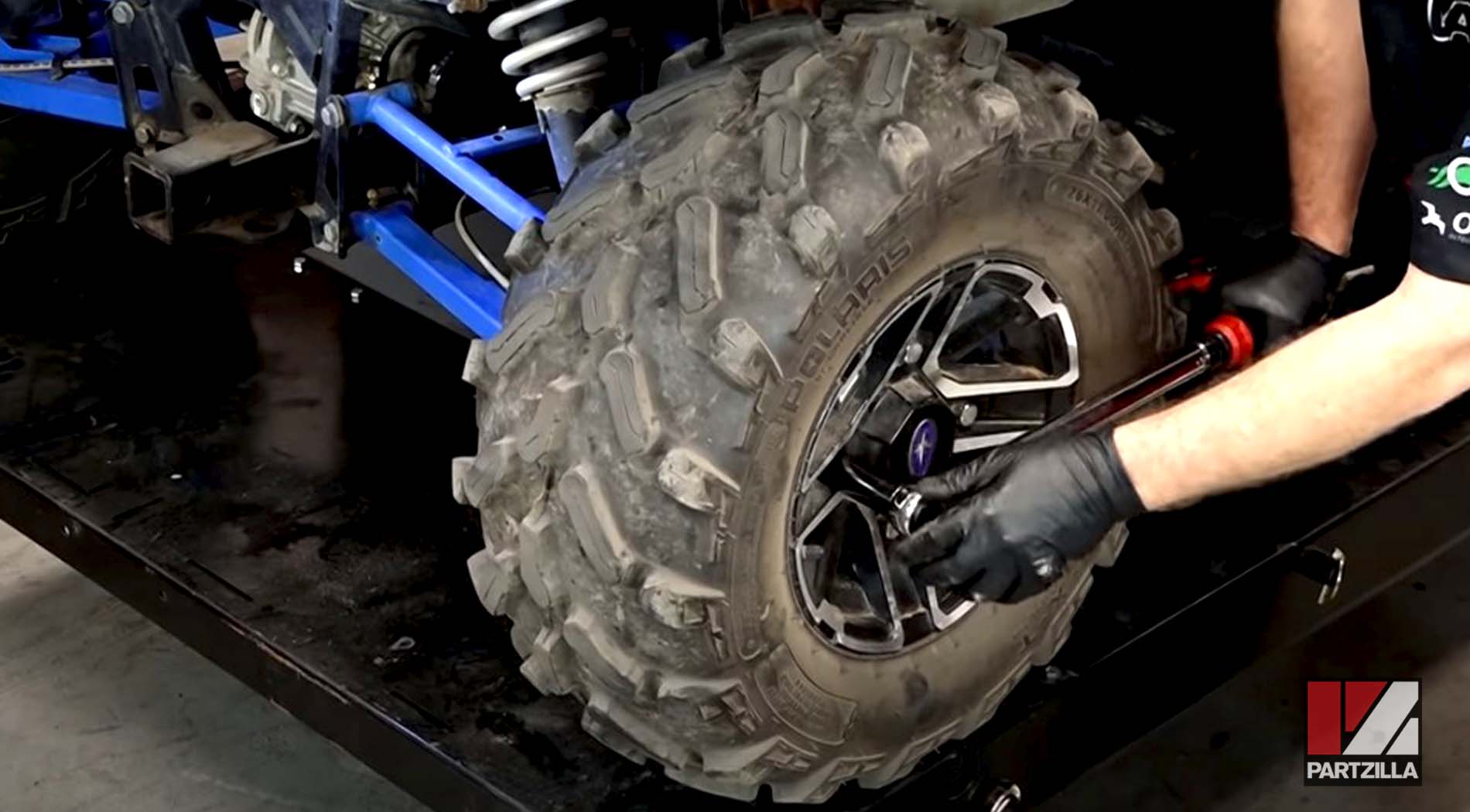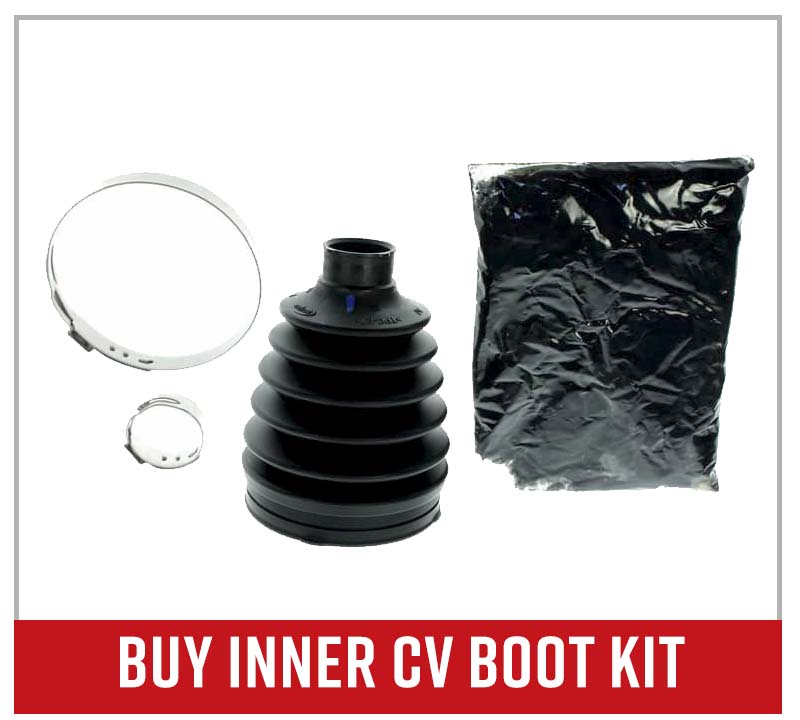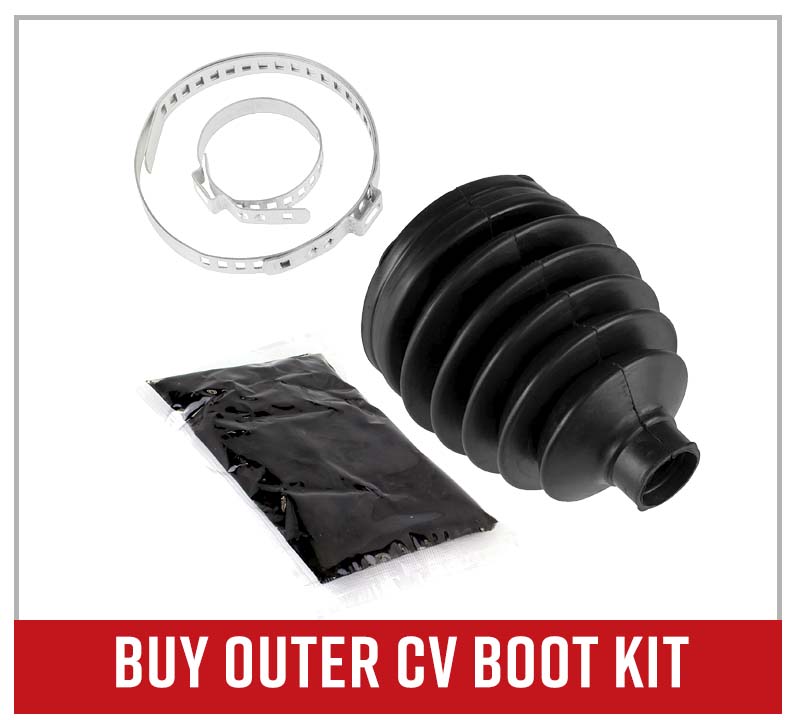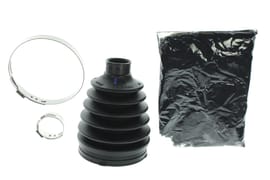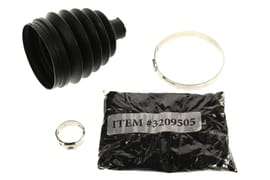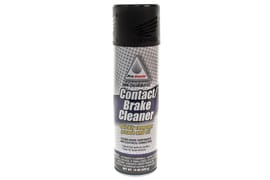Polaris Ranger 900 Rear CV Boot Replacement
Always inspect the CV boots on a Polaris UTV as part of your pre-ride checks. A split rear CV boot allows water and dirt into the CV joints, which quickly damages the joints and the driveshaft.
Replacing worn or damaged CV boots now costs a lot less than having to replace the CV joints and driveshaft due to neglect. Watch the video above and follow the steps below to replace the CV boots on a Polaris Ranger 900XP.
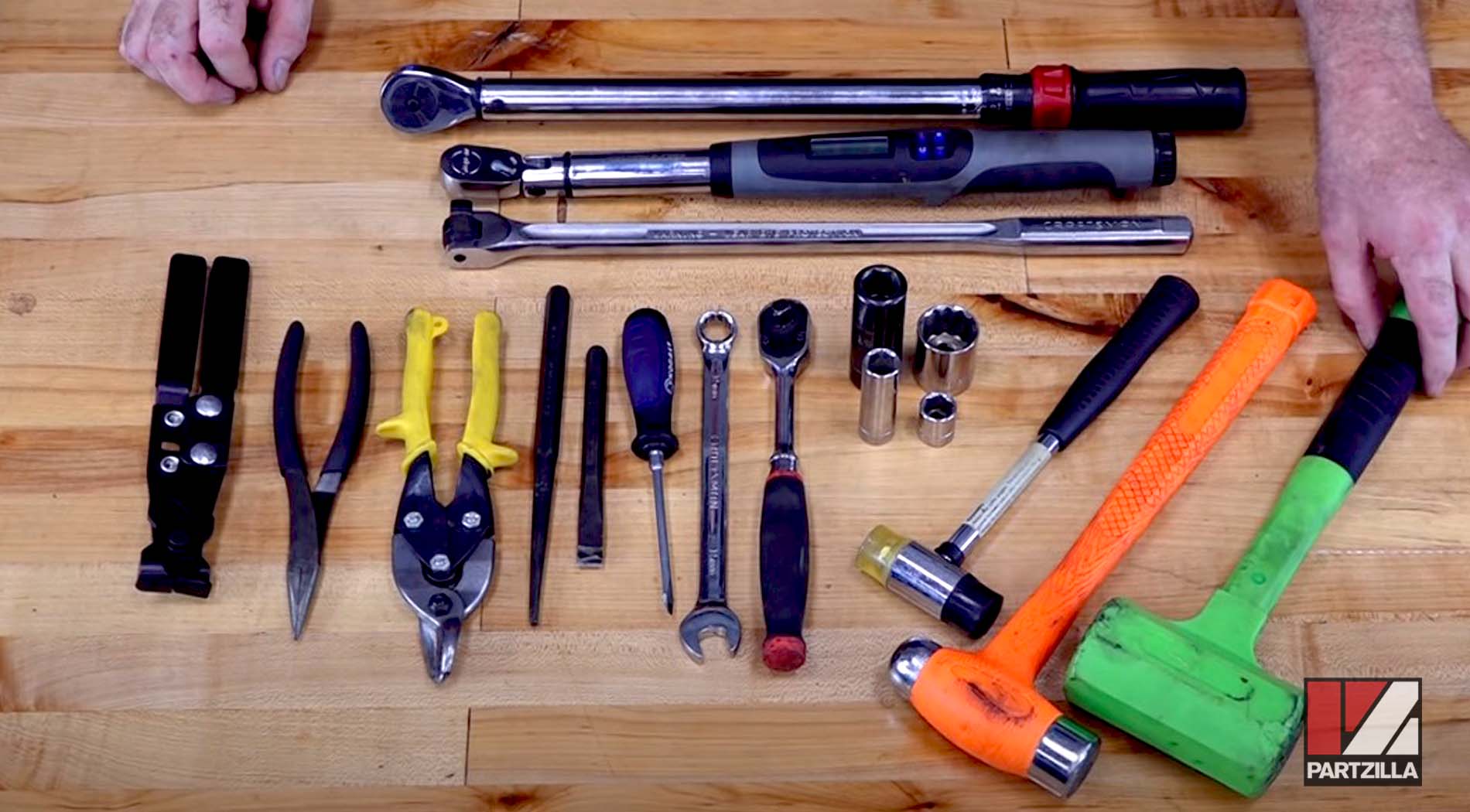
Tools and Parts – Polaris Ranger 900 Rear CV Boot Change
- Ballpeen hammer
- Soft-blow hammers
- Torque wrenches
- Breaker bar
- 15mm-27mm sockets
- 3/8th ratchet
- 15mm wrench
- Screwdrivers
- Chisel
- Side cutters
- Needlenose pliers
- CV joint pliers
- Soft metal drift
- Grease
- Inner CV boot kit
- Outer CV boot kit
- Contact cleaner
Removing the Rear CV Boots on a Polaris Ranger 900
Step 1. Break loose the wheel’s lug nuts before lifting the Ranger. Don’t loosen the nuts with the UTV already in the air and no resistance on the wheel.
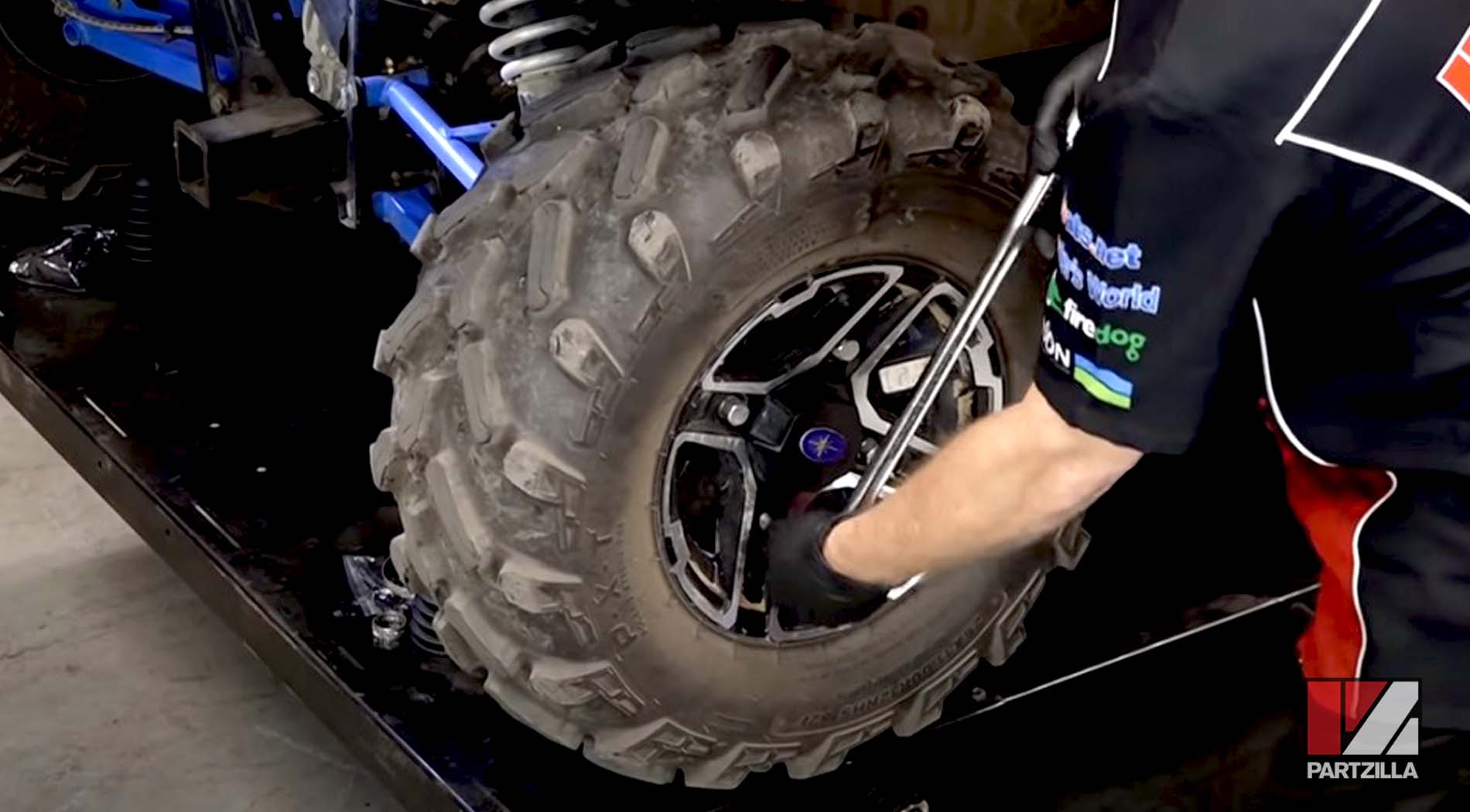
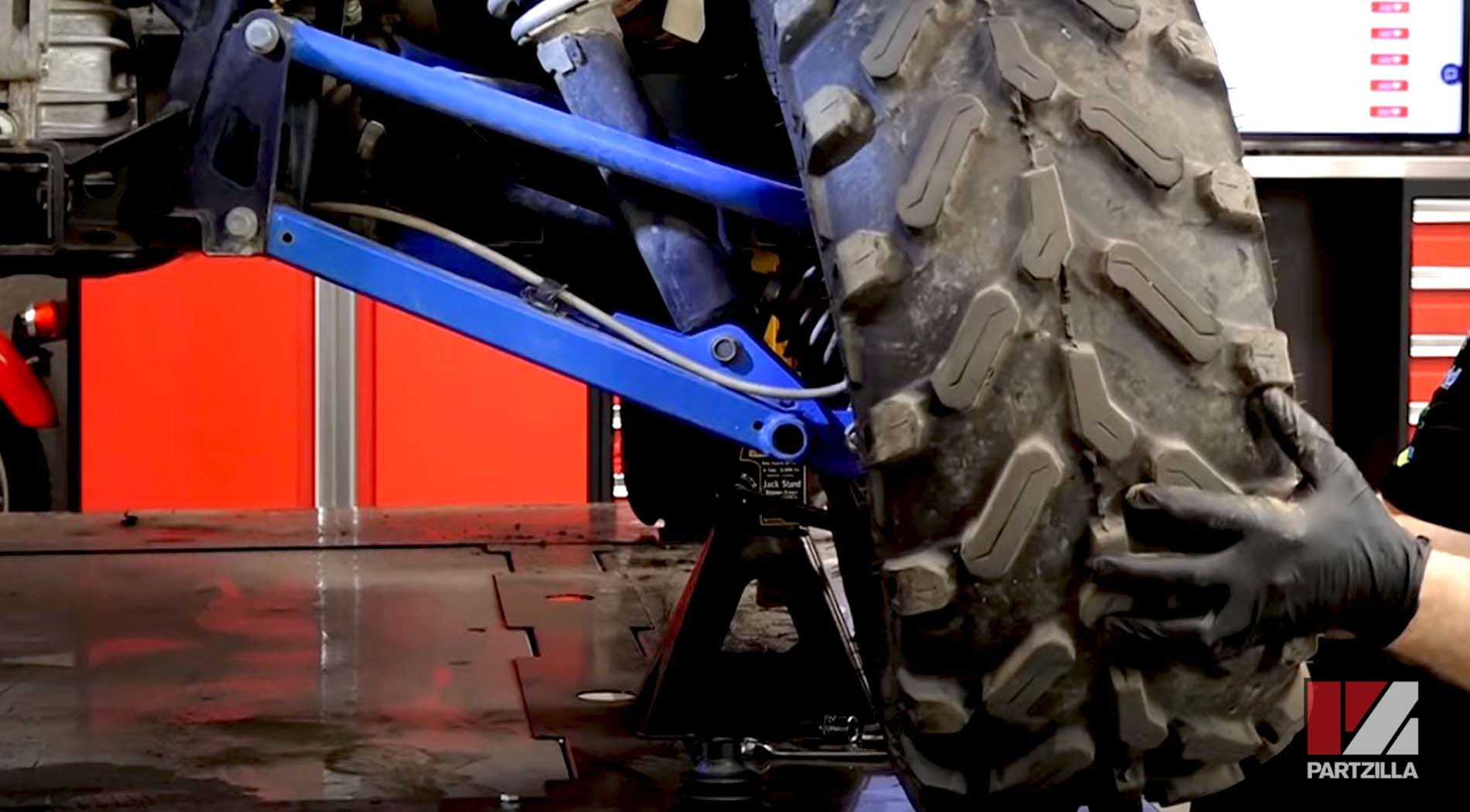
Step 2. Remove the cotter pin, castle nut and pair of thrust washers from the axle.
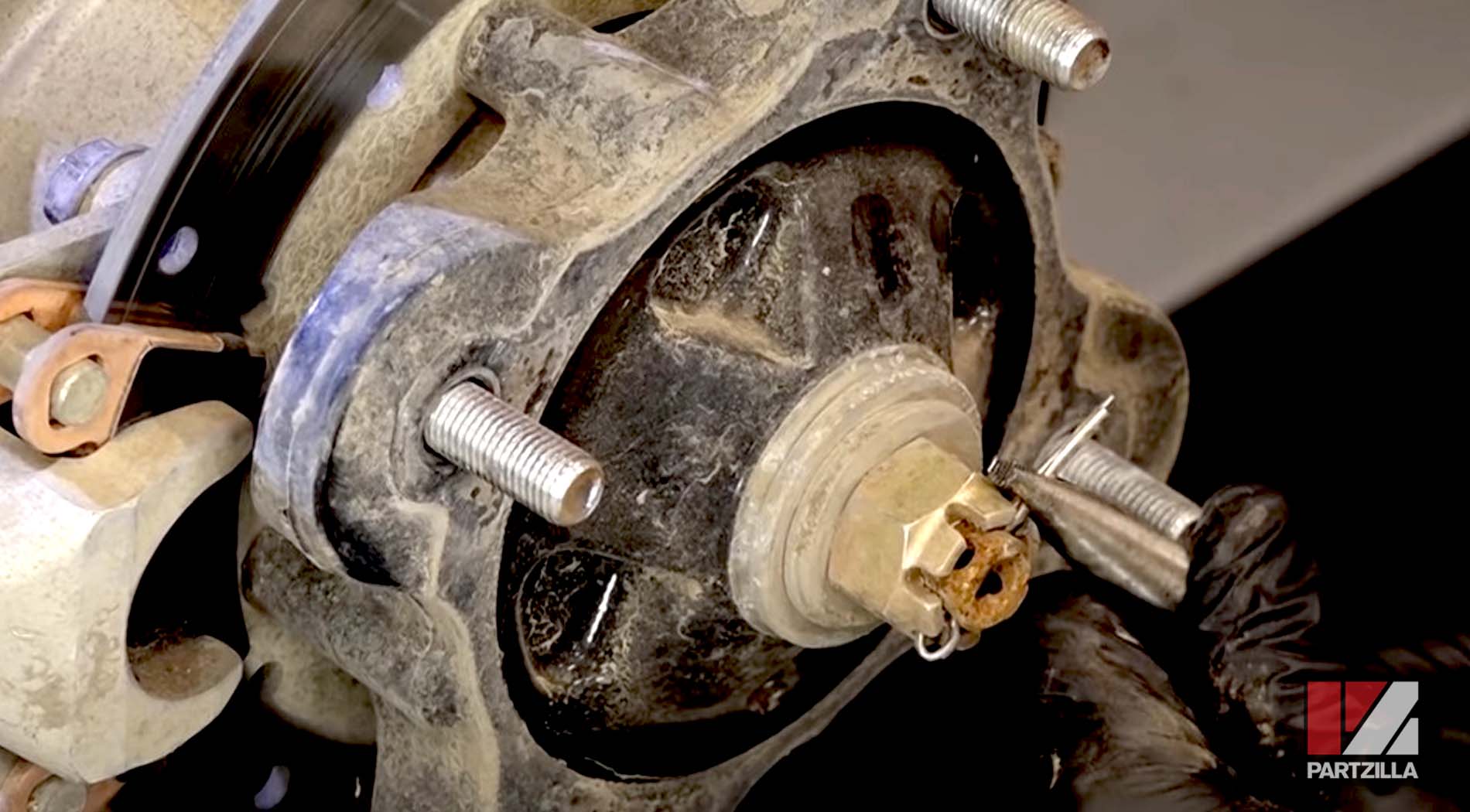
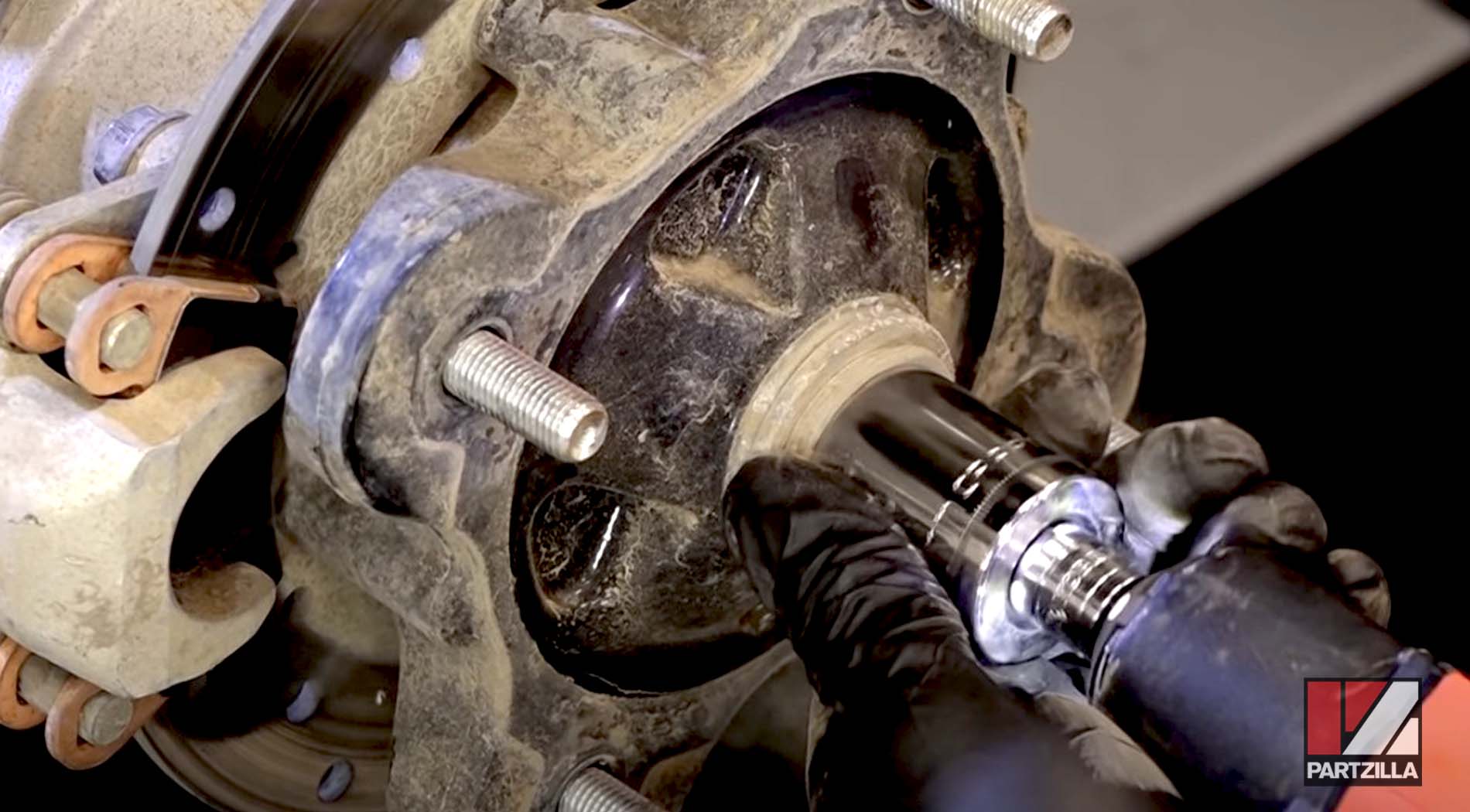
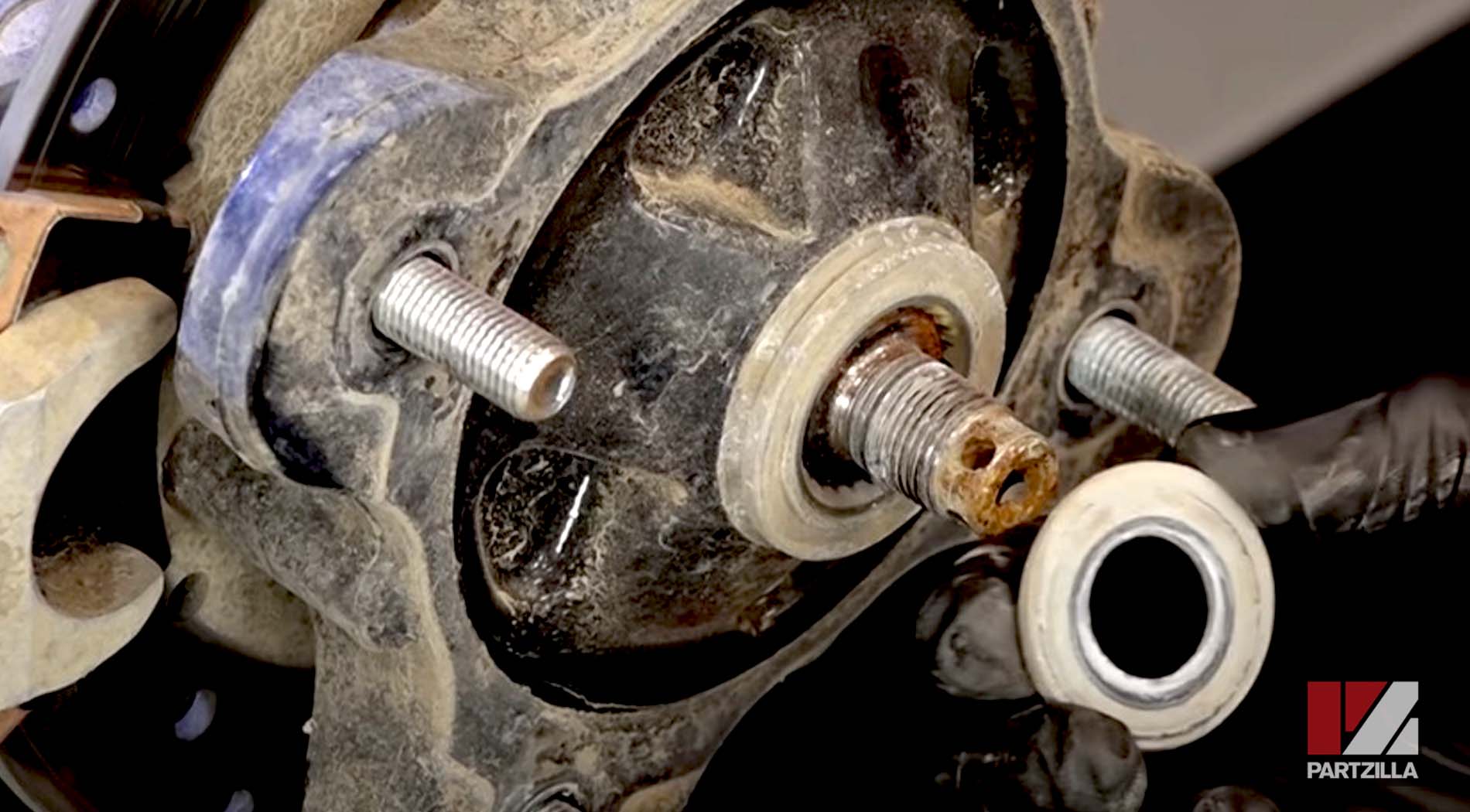
Step 3. Remove the bolt from the upper A-arm mounting. Tilt the top of the upright/hub assembly downward, and pull the driveshaft and CV axle out from the back of the assembly. Raise the A-arm up and out of the way.
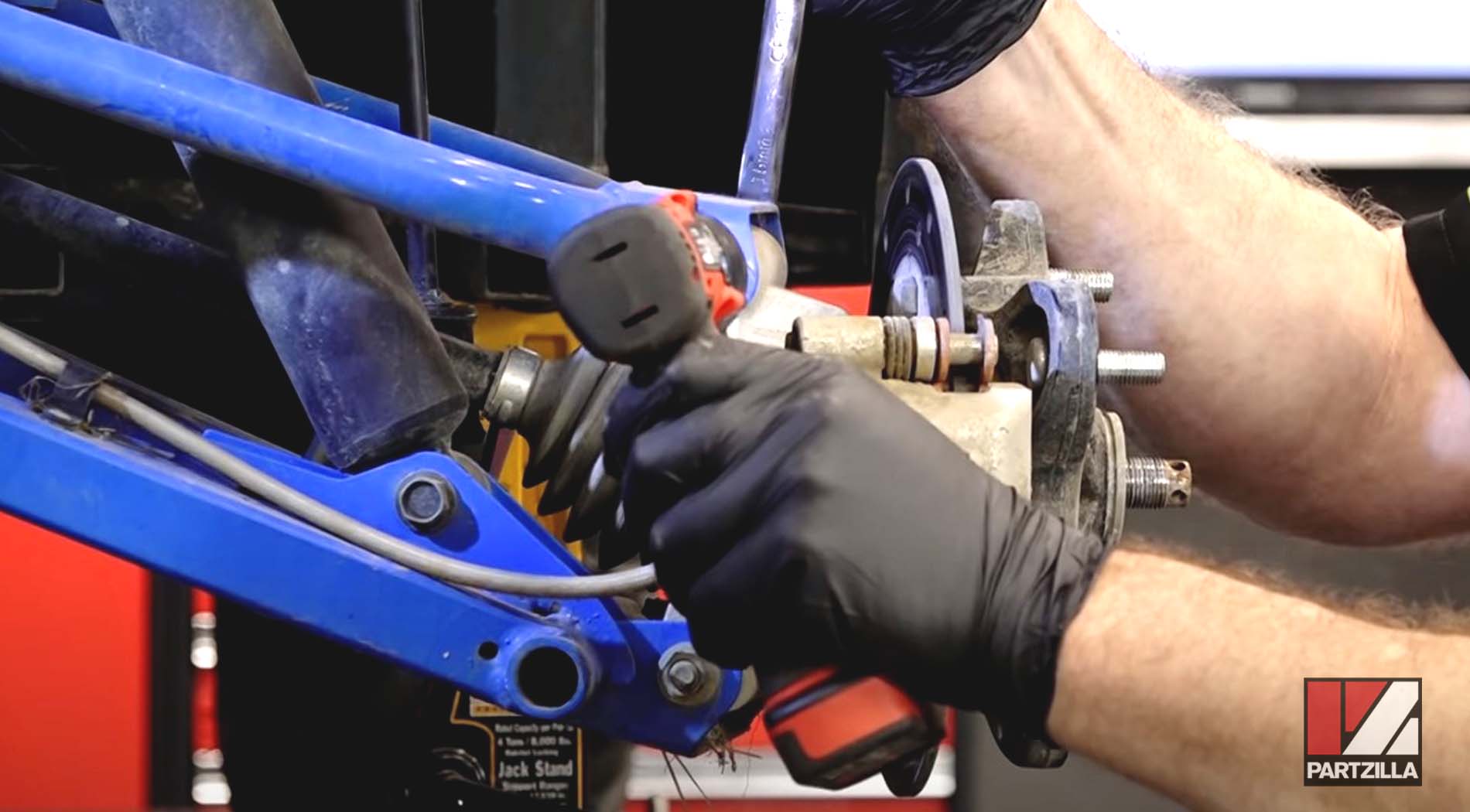
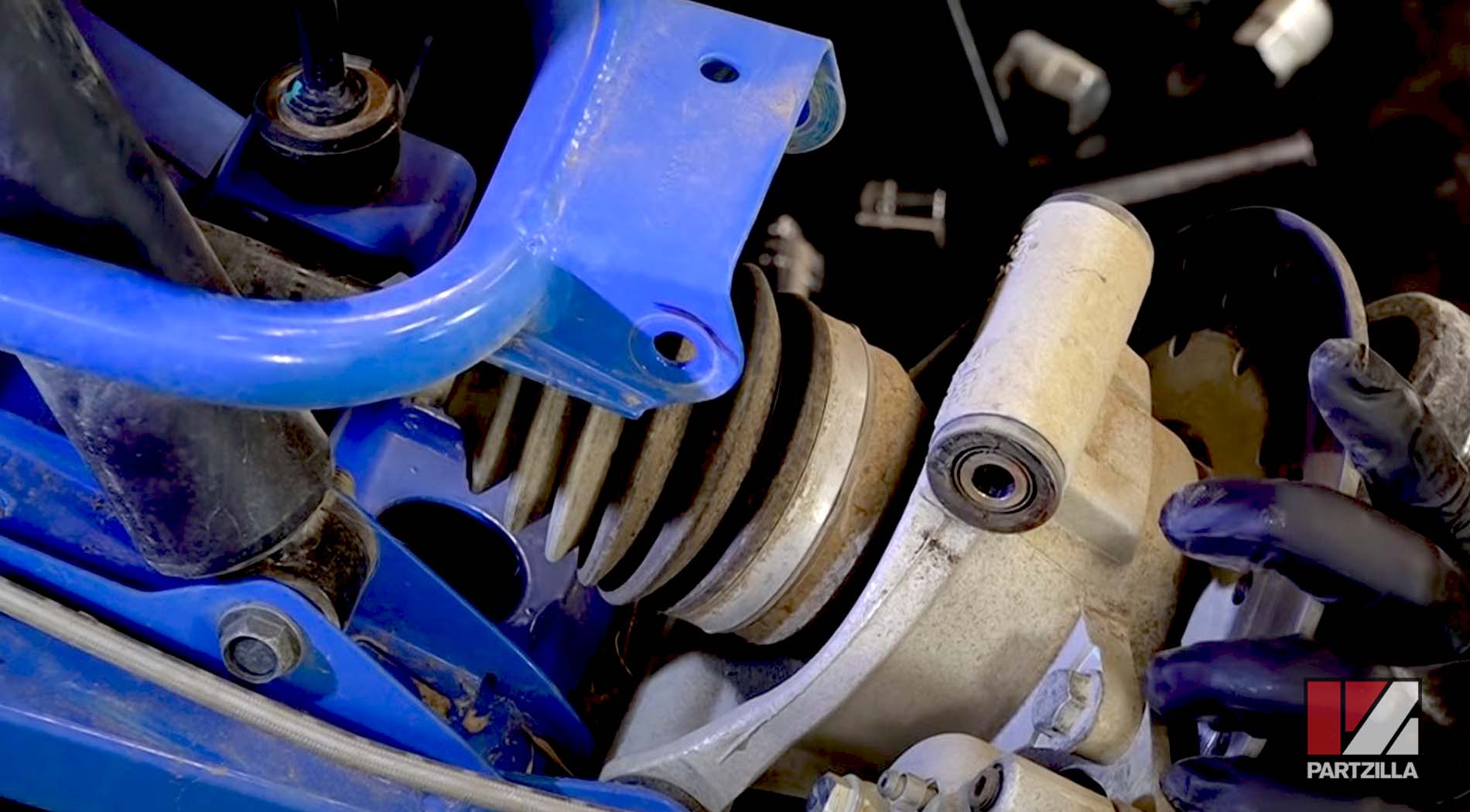
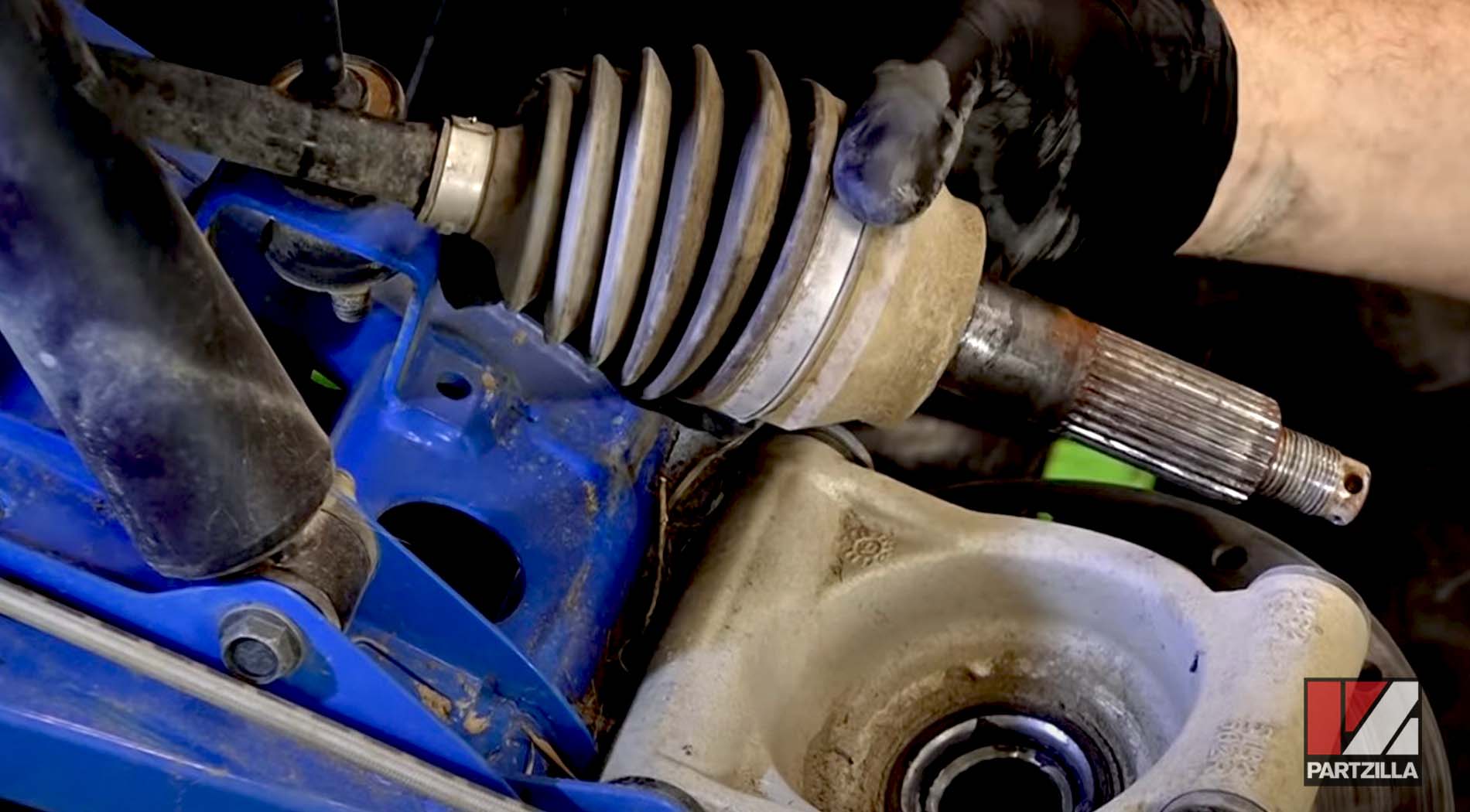
PRO TIP: Put something under the upright/hub assembly to support it so as not to stretch or stress the brake line attached to the caliper.
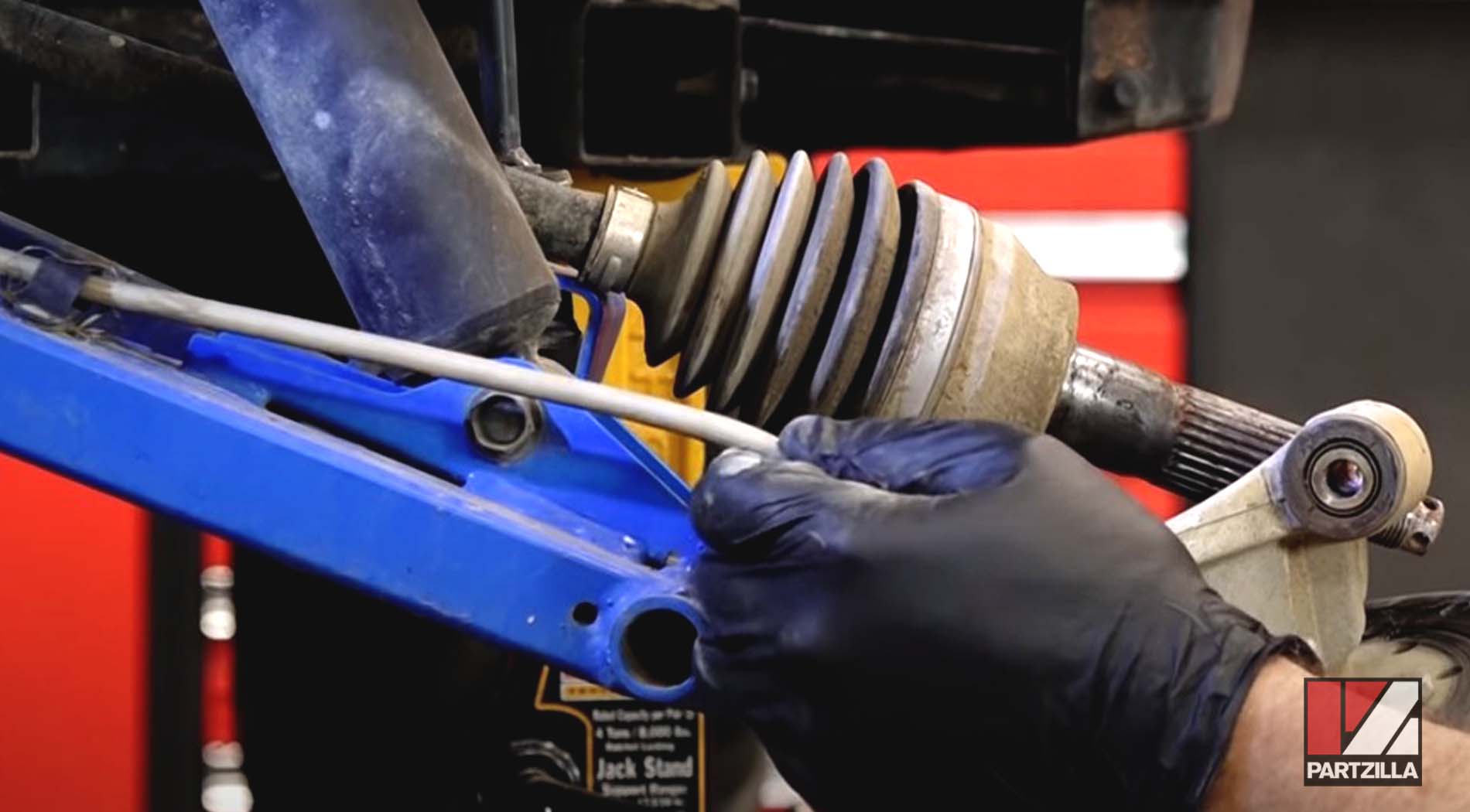
Step 4. Pull the driveshaft and the inner CV joint out of the transmission by making a few short but firm pulls on the driveshaft.
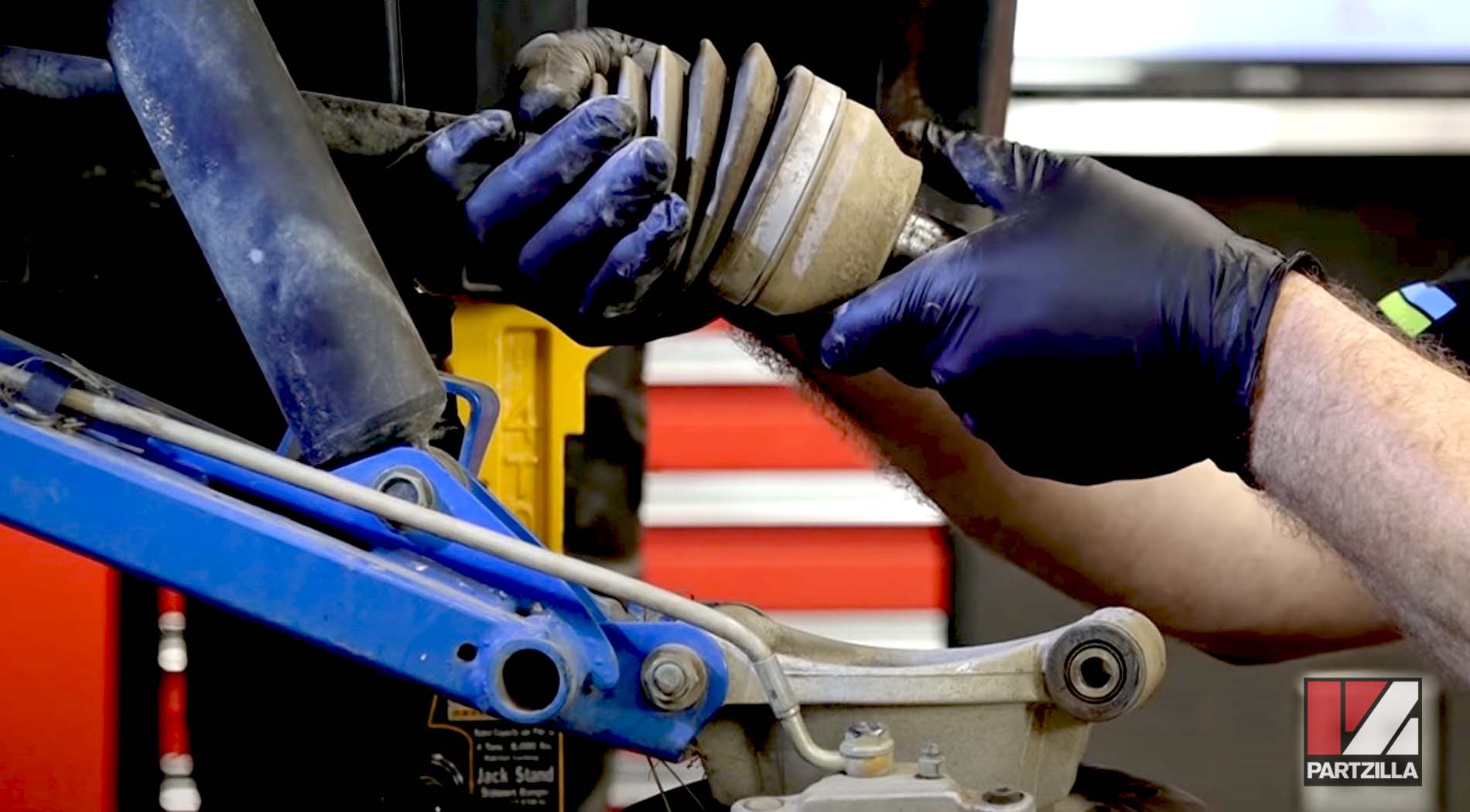
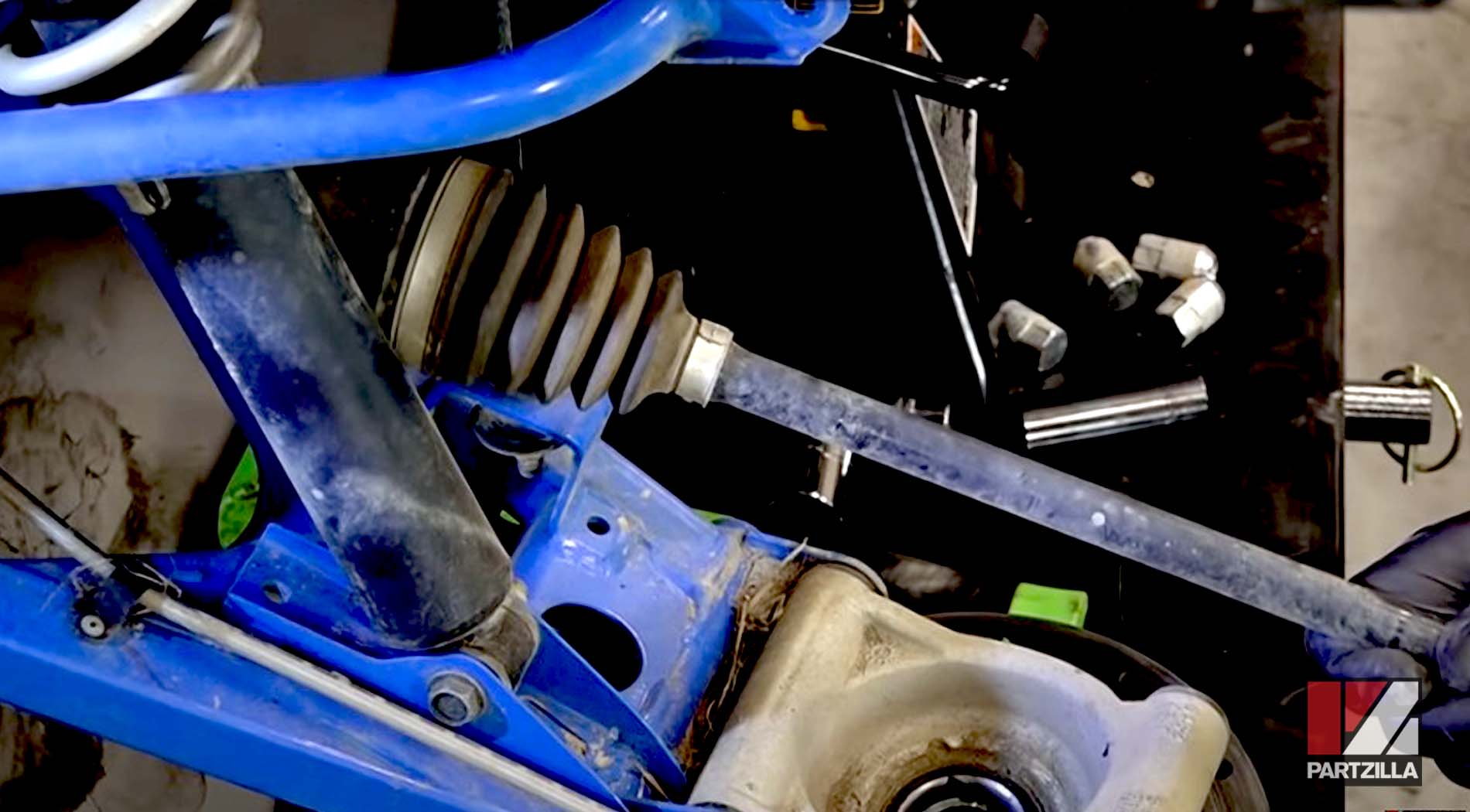
PRO TIP: Secure the driveshaft in a vice or clamp on a workbench to make things easier.
Step 5. Remove the retaining bands from the CV boots.
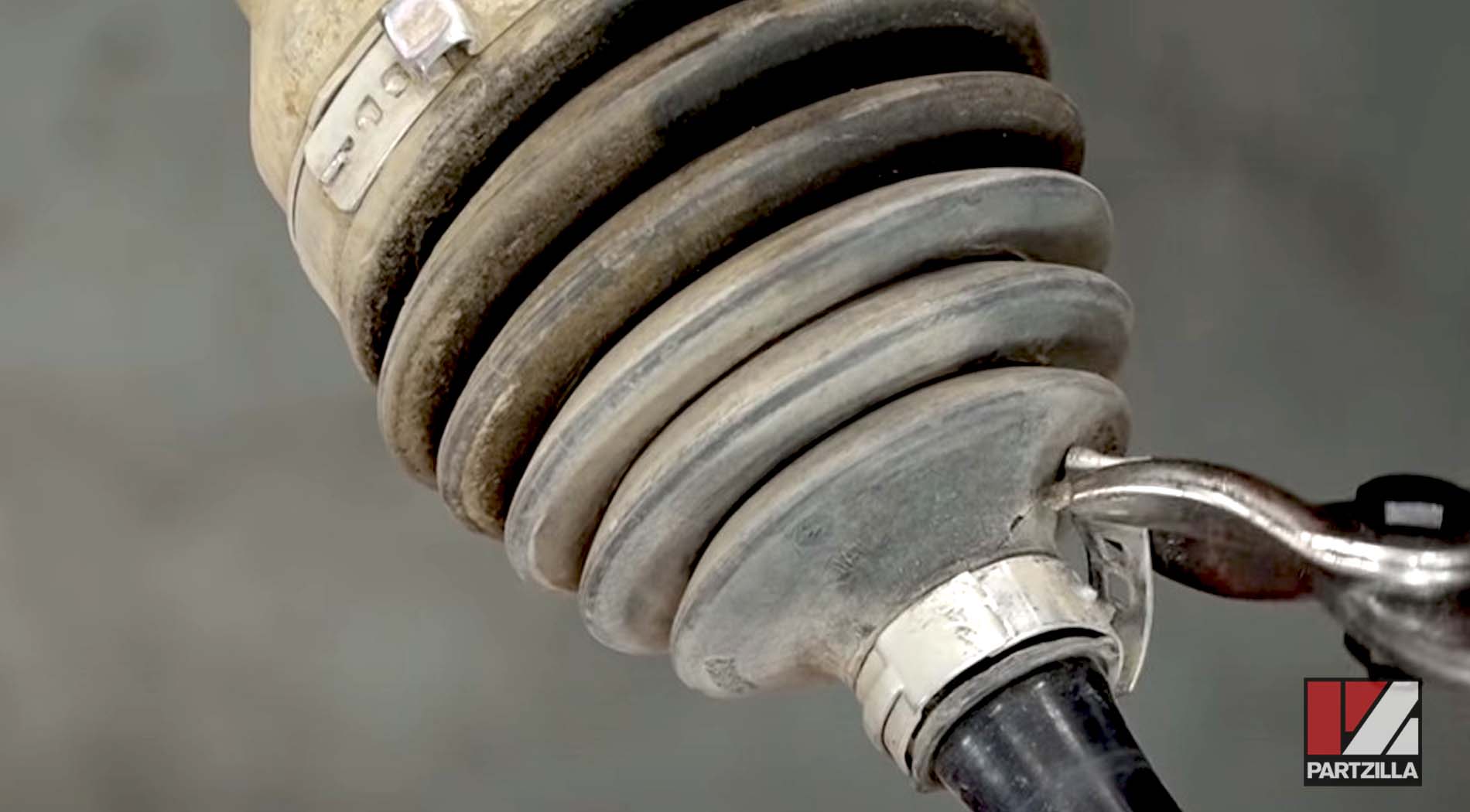
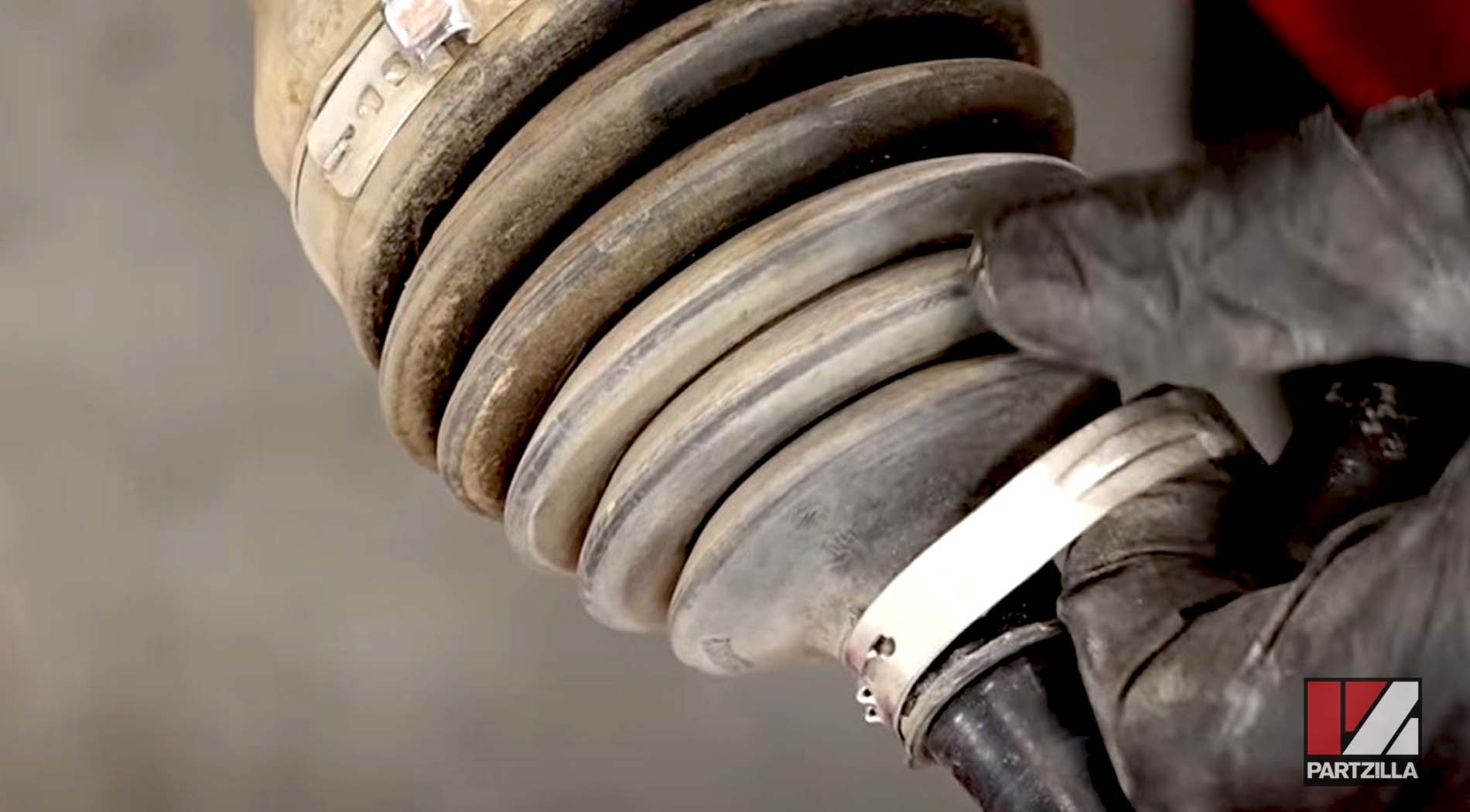
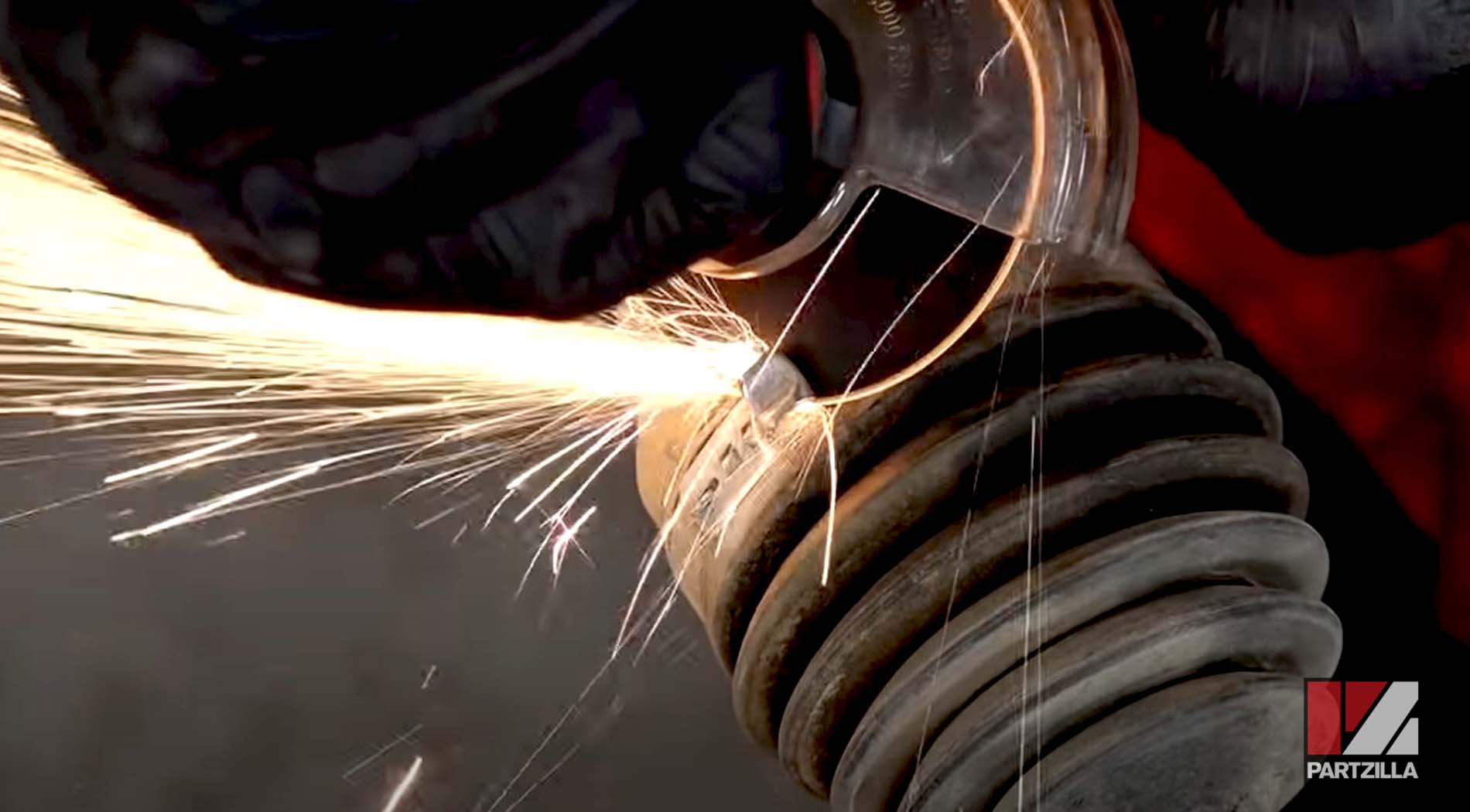
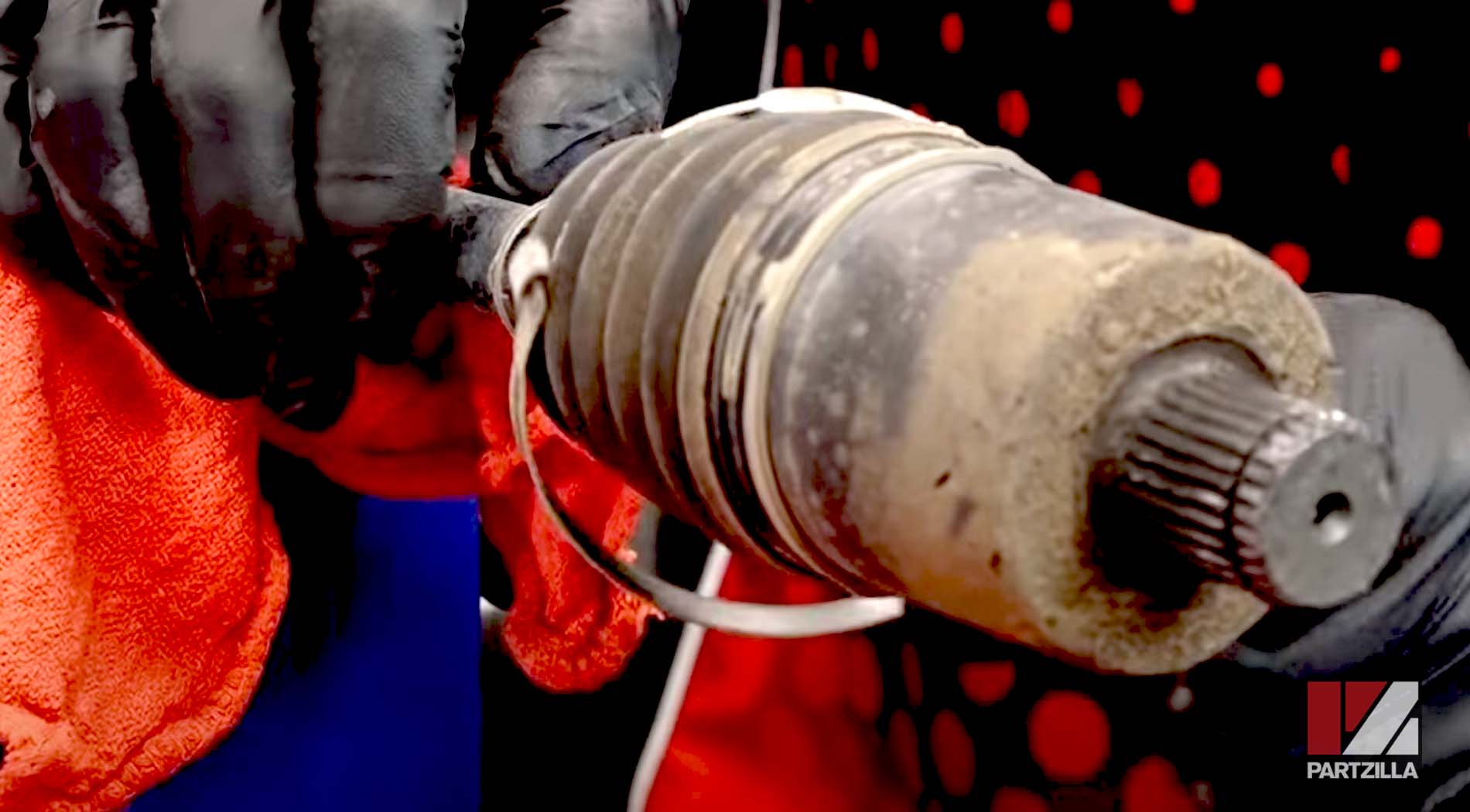
The bands are tightly compressed and you have several options for removing them:
- Use a hammer and chisel under the leading edge of the bands to knock the bands off.
- Use metal snips to cut the bands off.
- Use a cut-off wheel to cut the bands off.
Step 6. Pull the outer CV boot off the outer CV joint and up toward the center of the driveshaft.
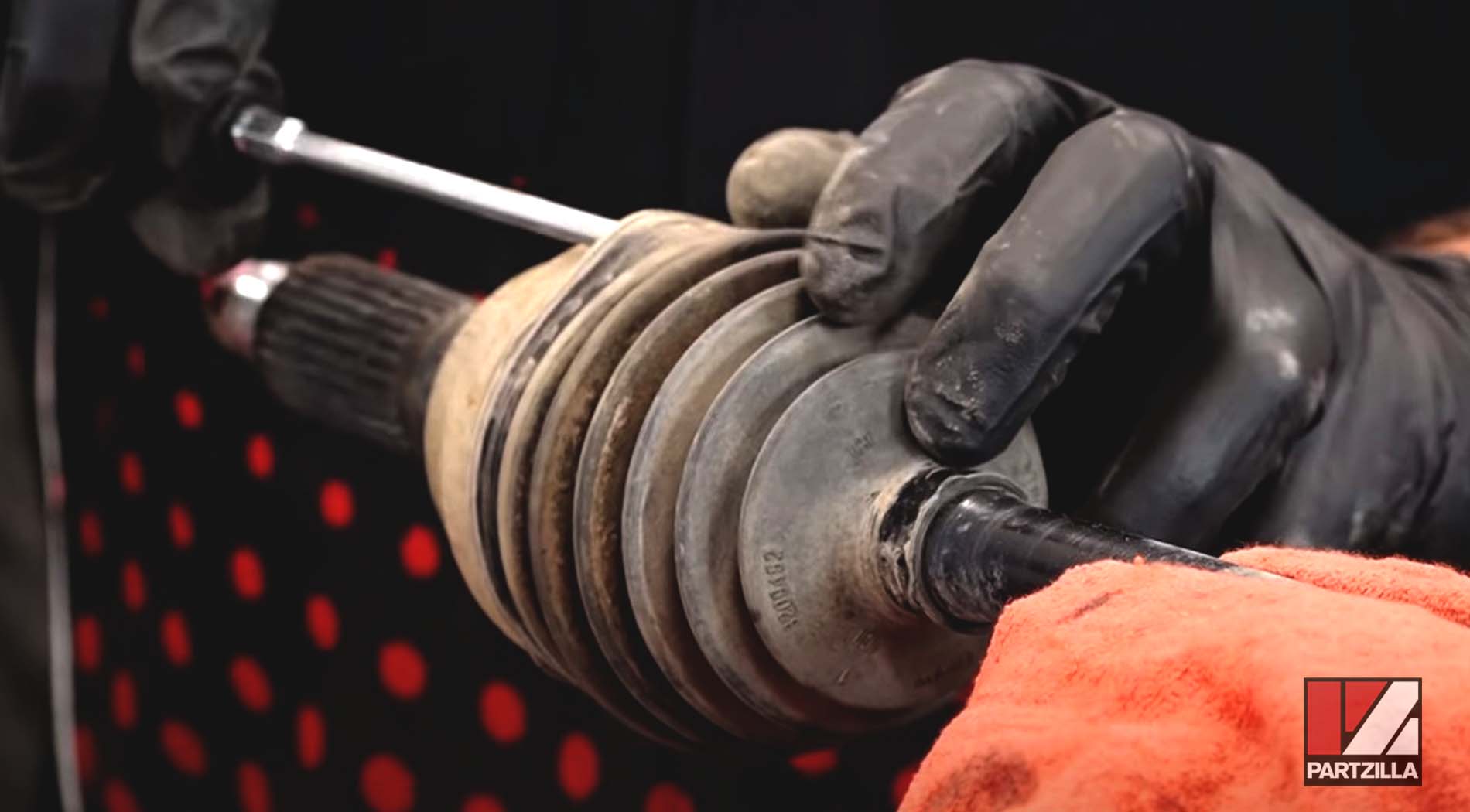
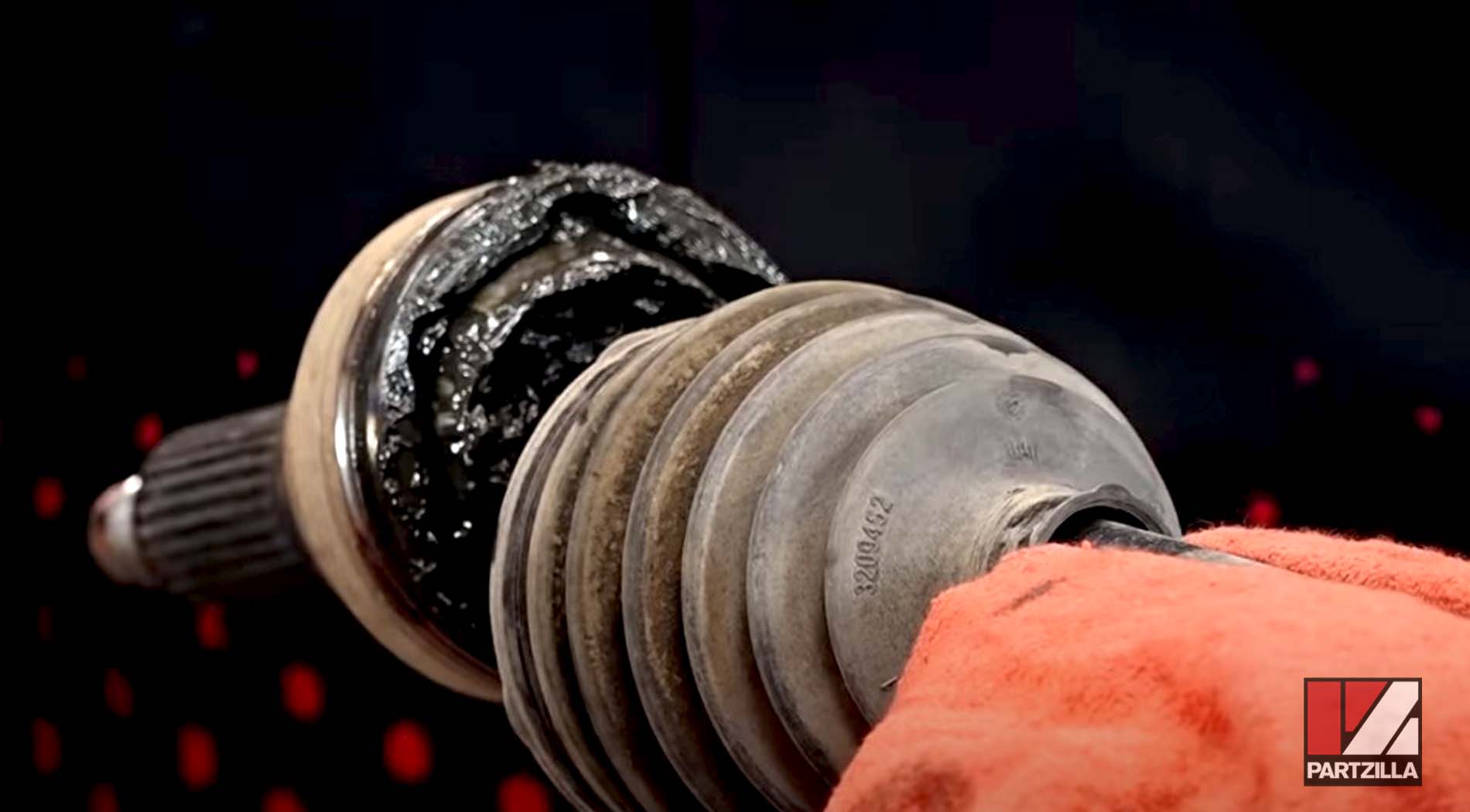
Step 7. Use a soft piece of metal such as a brass drift pin to knock the outer CV joint off the driveshaft by hammering the drift pin on the CV joint where its splines meet the driveshaft’s splines.
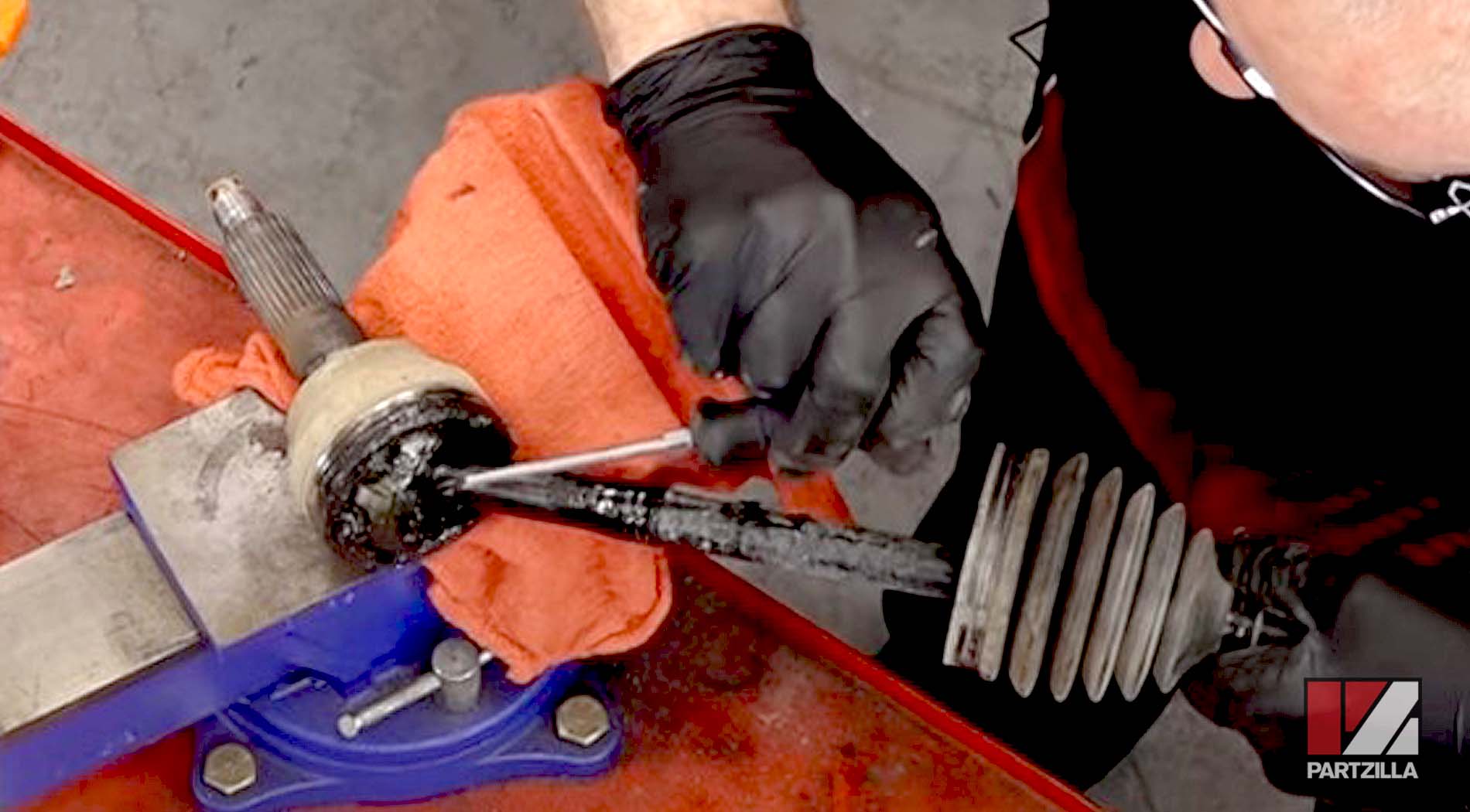
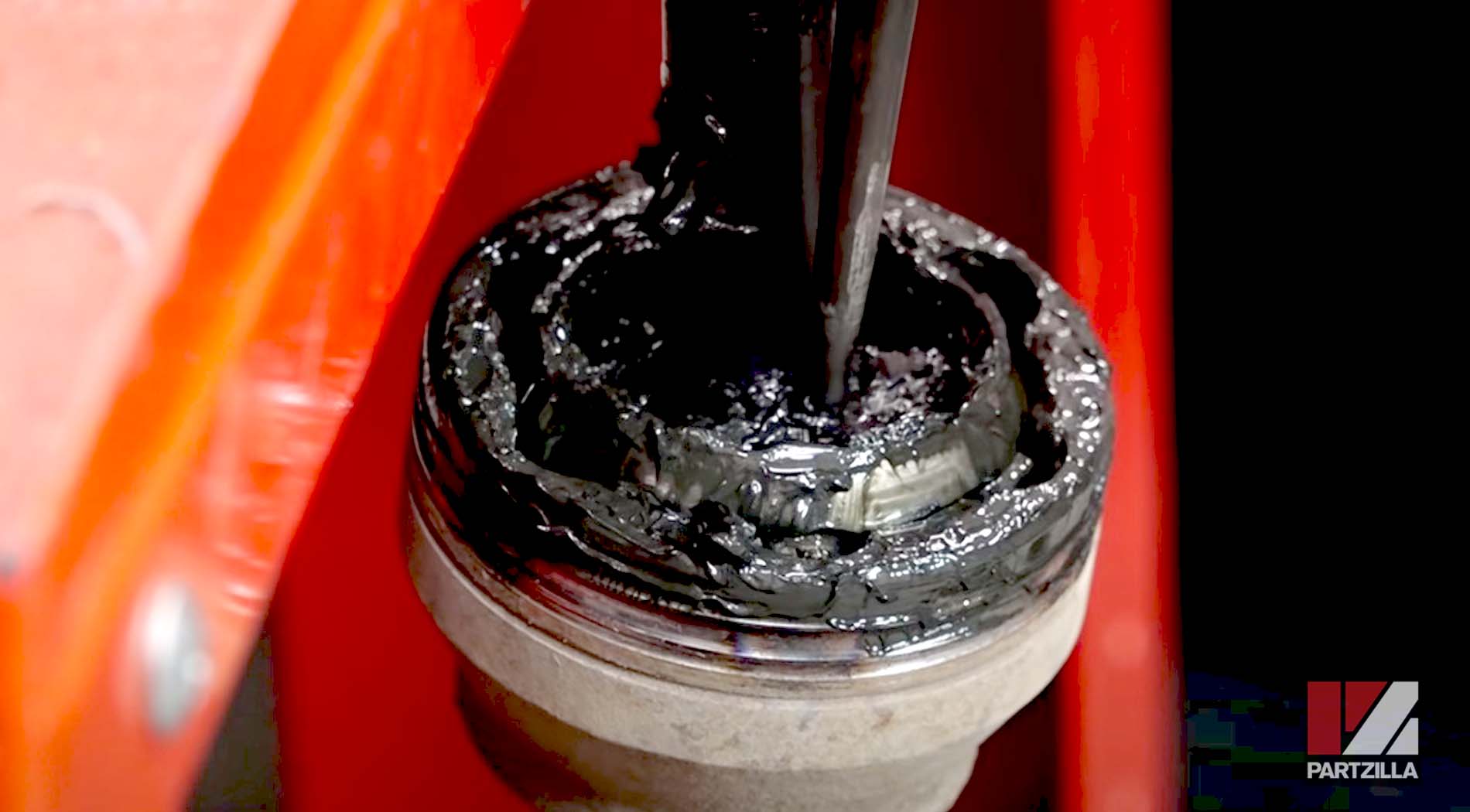
Step 8. Slide the old CV boots off the driveshaft, then use contact-brake cleaner to clean the CV joint.
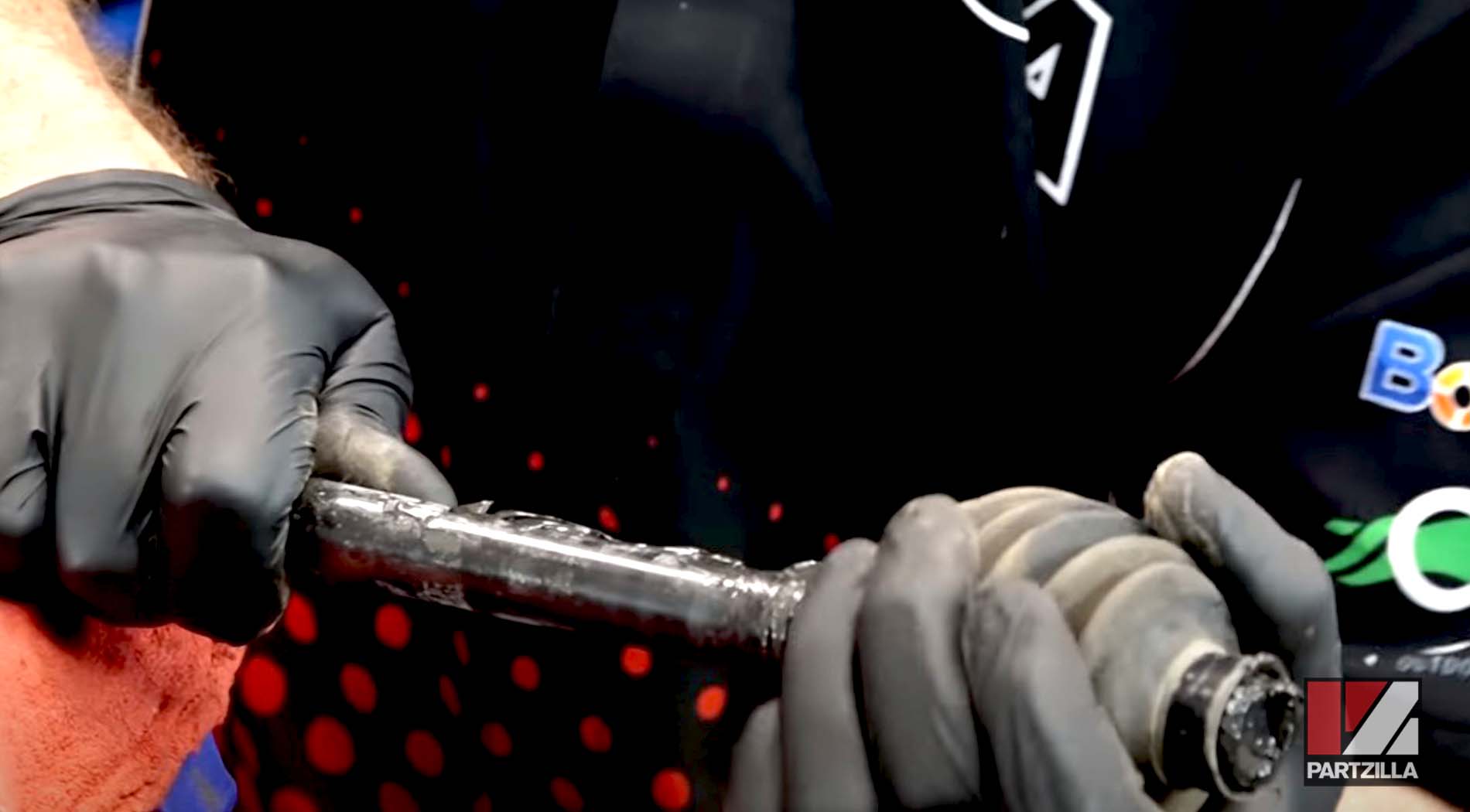
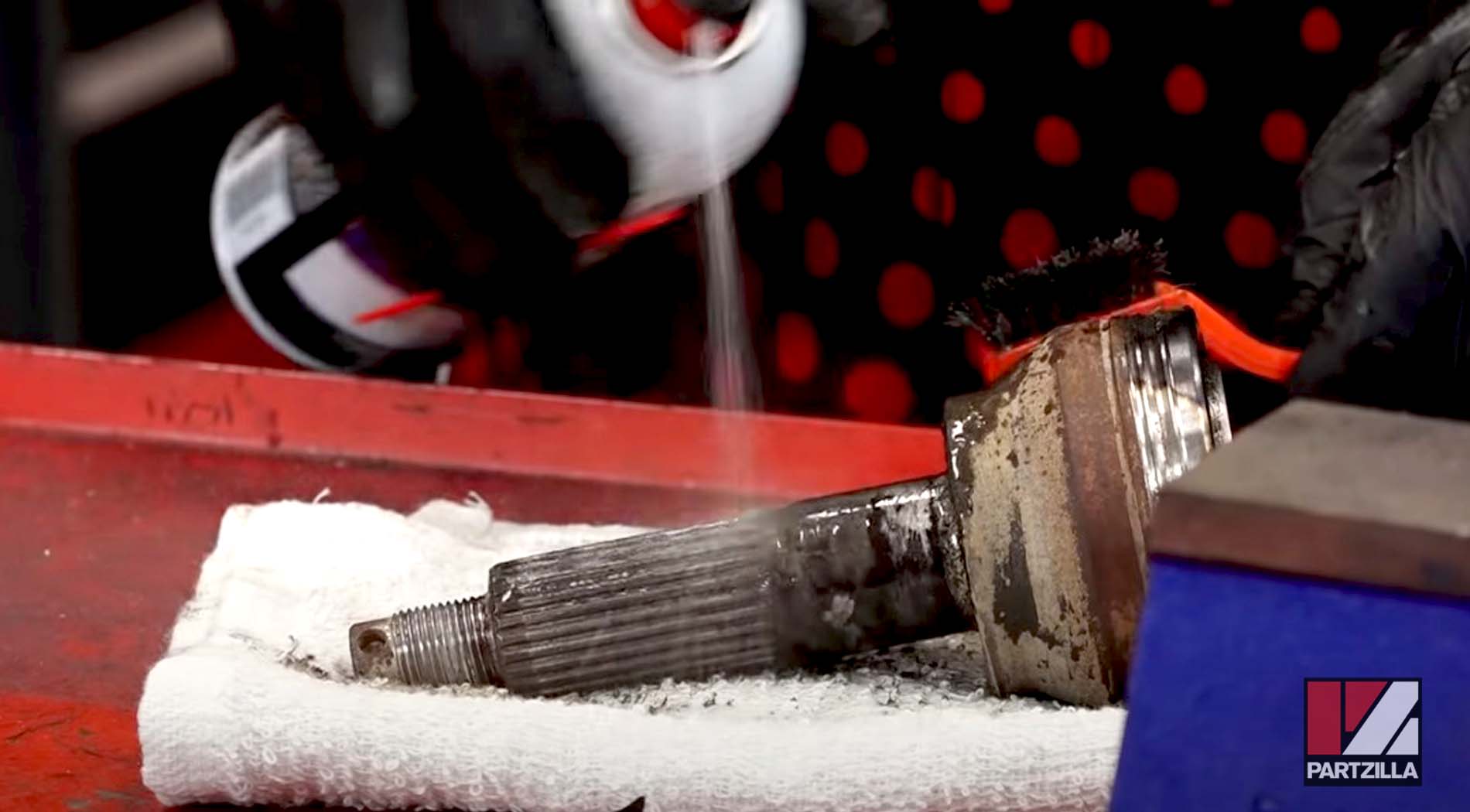
Replacing the Rear CV Boots on a Polaris Ranger
Step 9. Slide a new inner CV boot onto the driveshaft, then pack the boot and inner CV joint with grease and pull the boot into its slot on the inner CV joint. Pull the other end of the boot into its slot on the driveshaft.
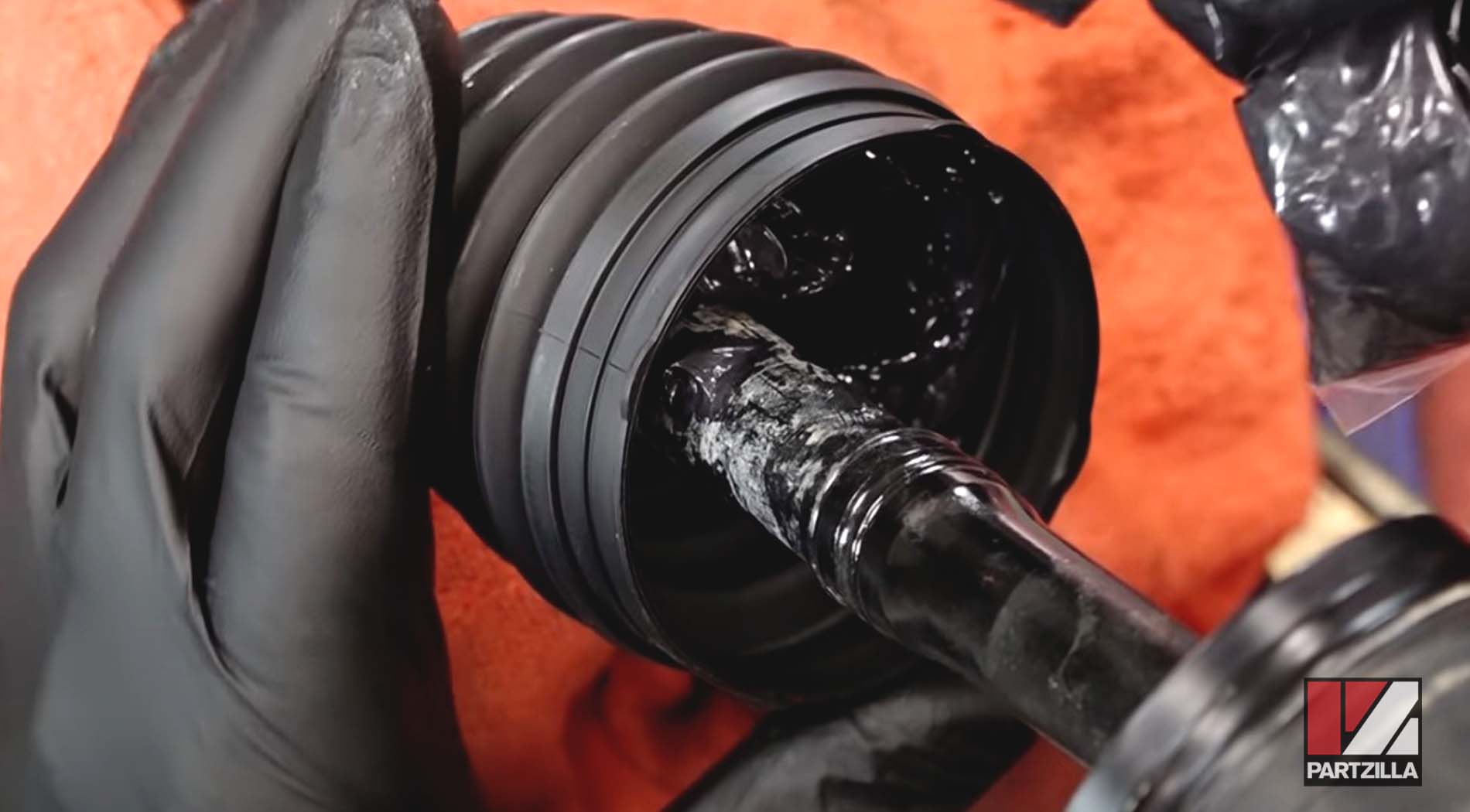
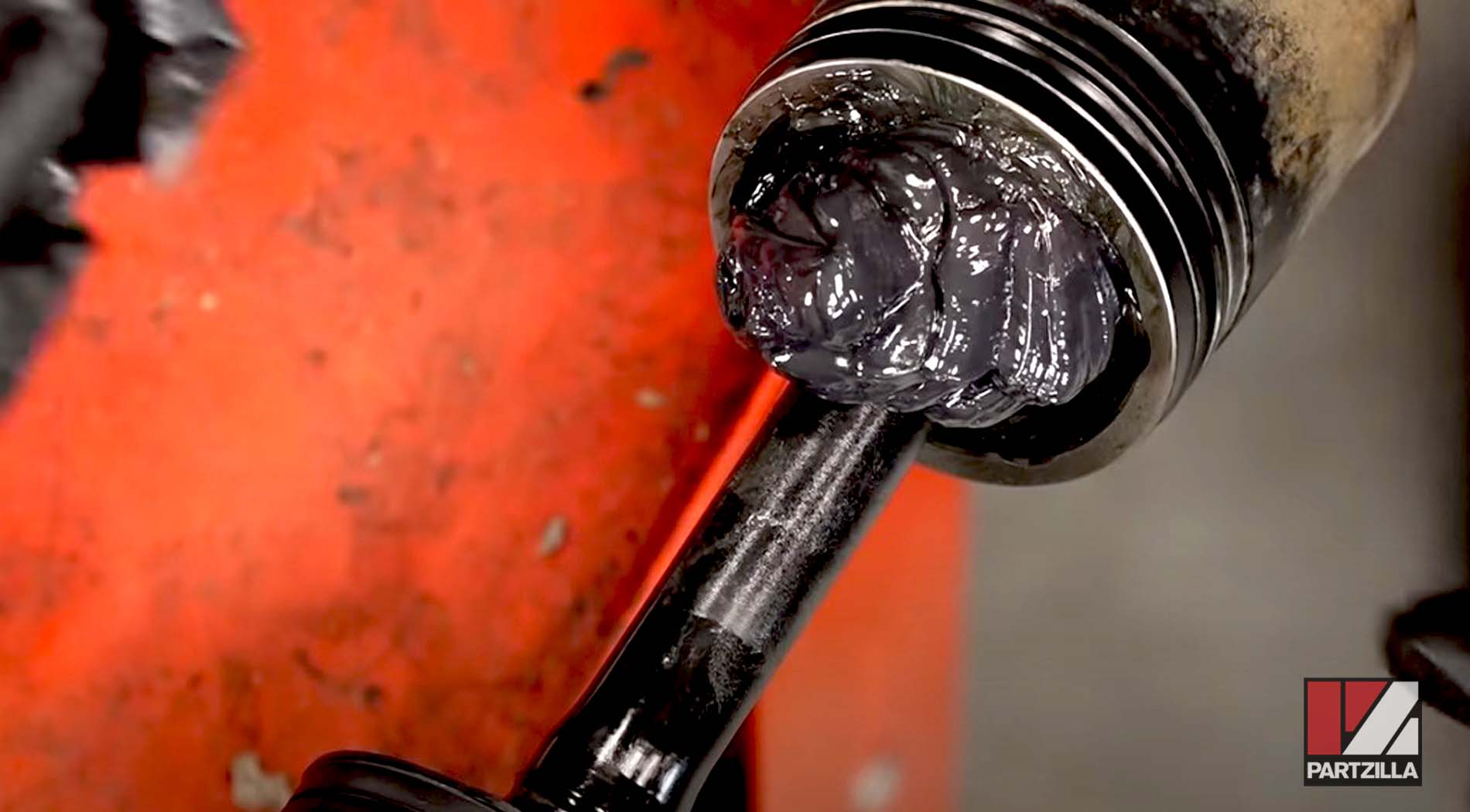
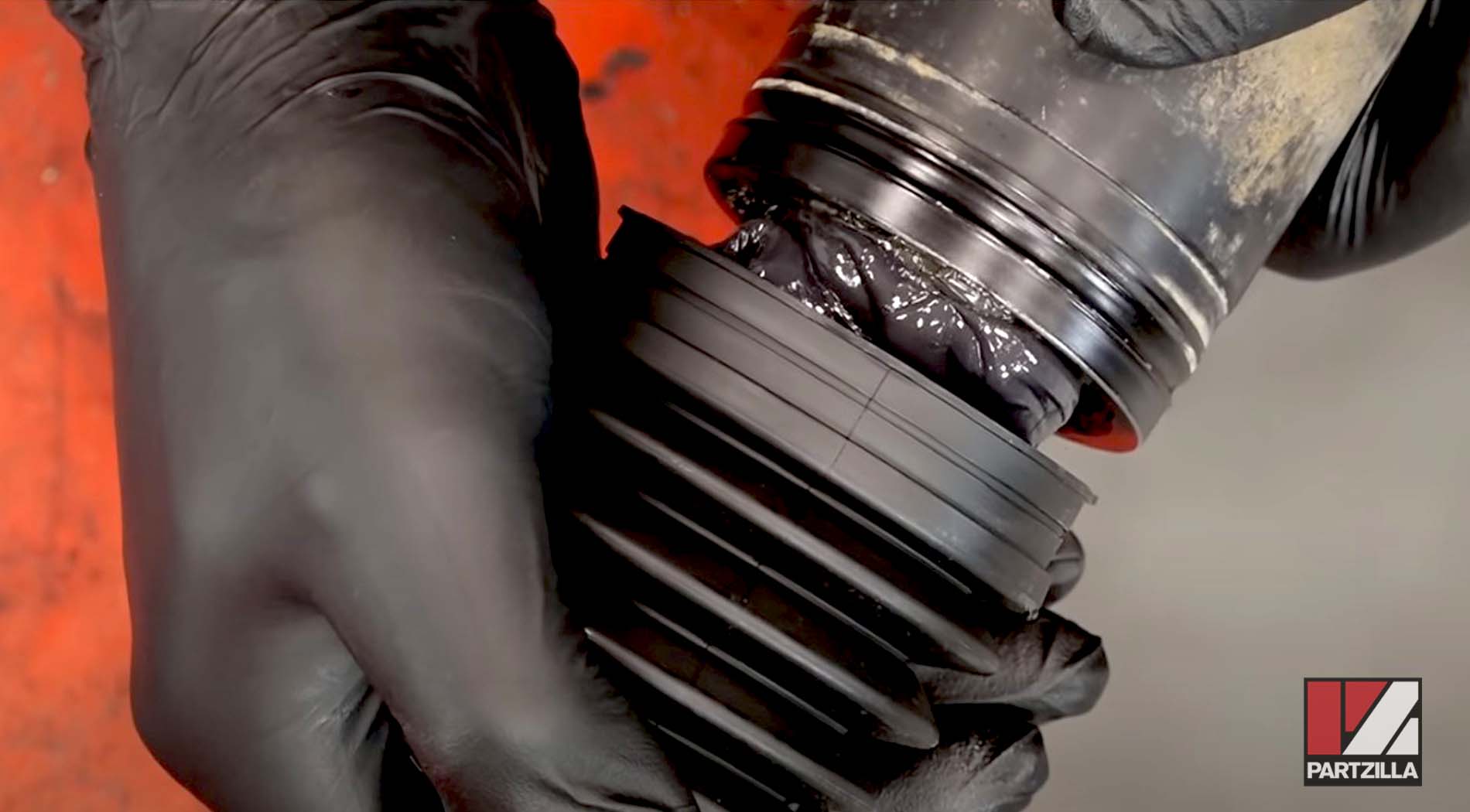
NOTE: Make sure the lip of the boot and the slot on the CV joint are both clean and free of grease so they can form a tight seal and prevent the boot from slipping off.
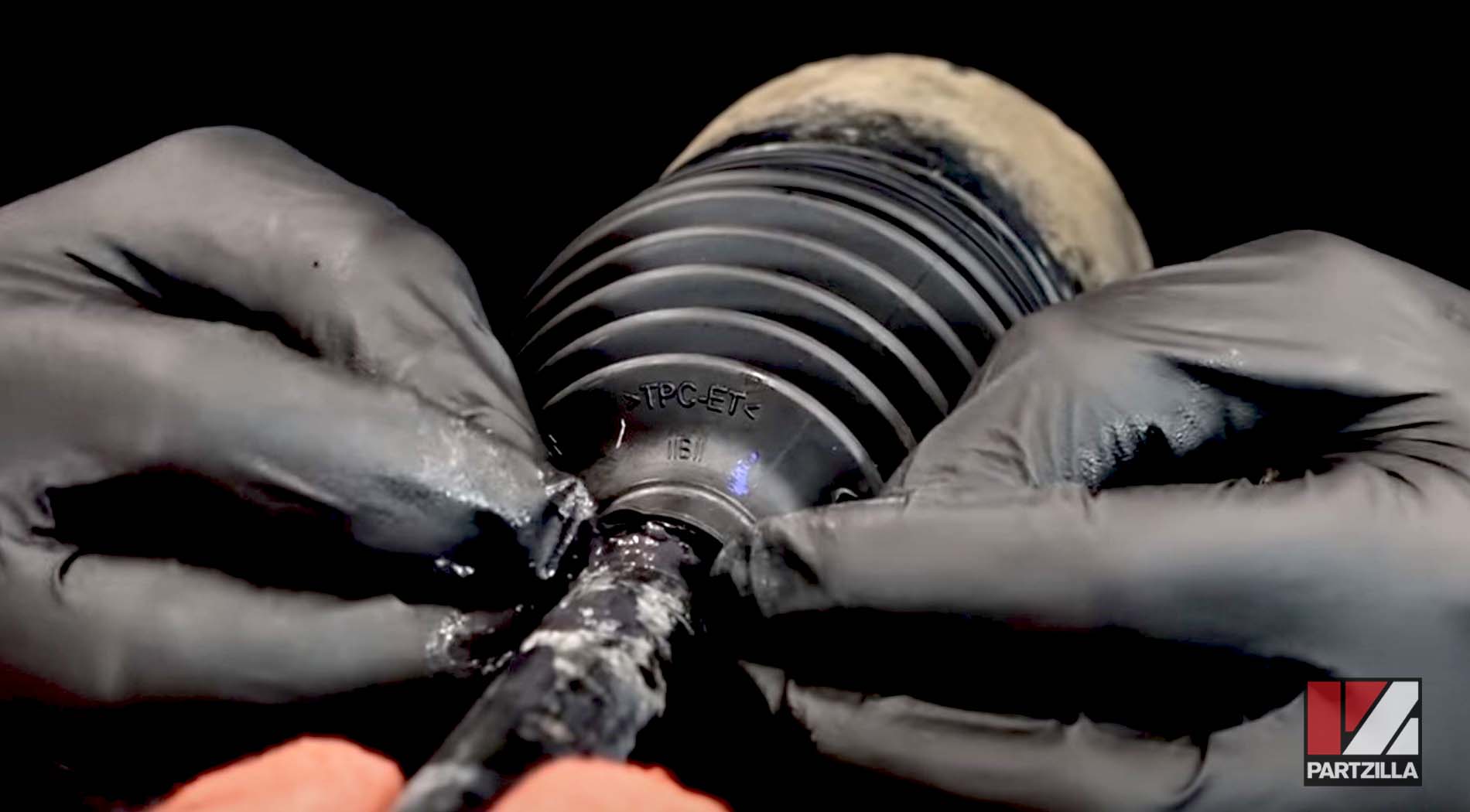
Step 10. Install the new retaining bands over the inner CV boot, and use CV joint pliers or a CV boot tool to tighten the bands.
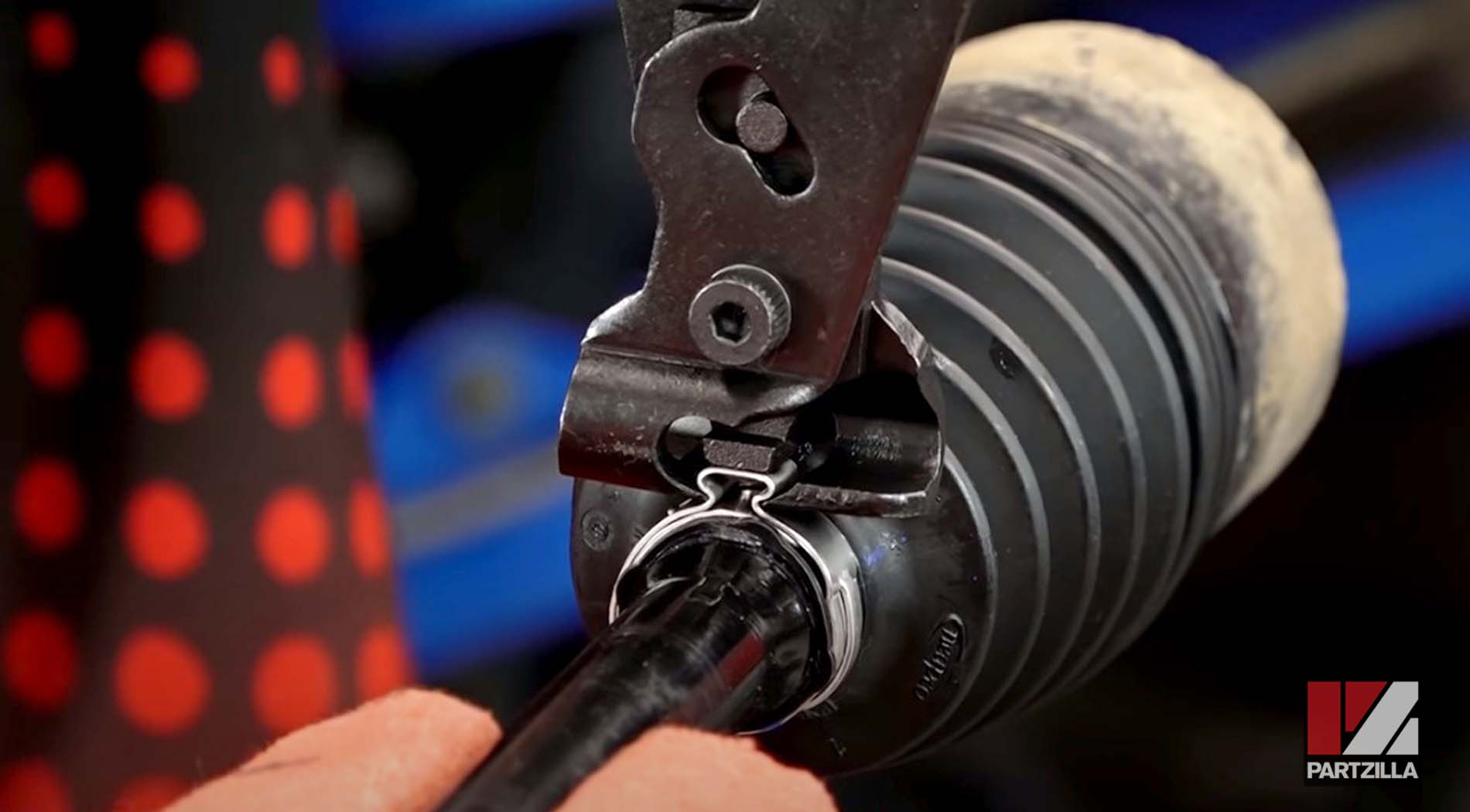
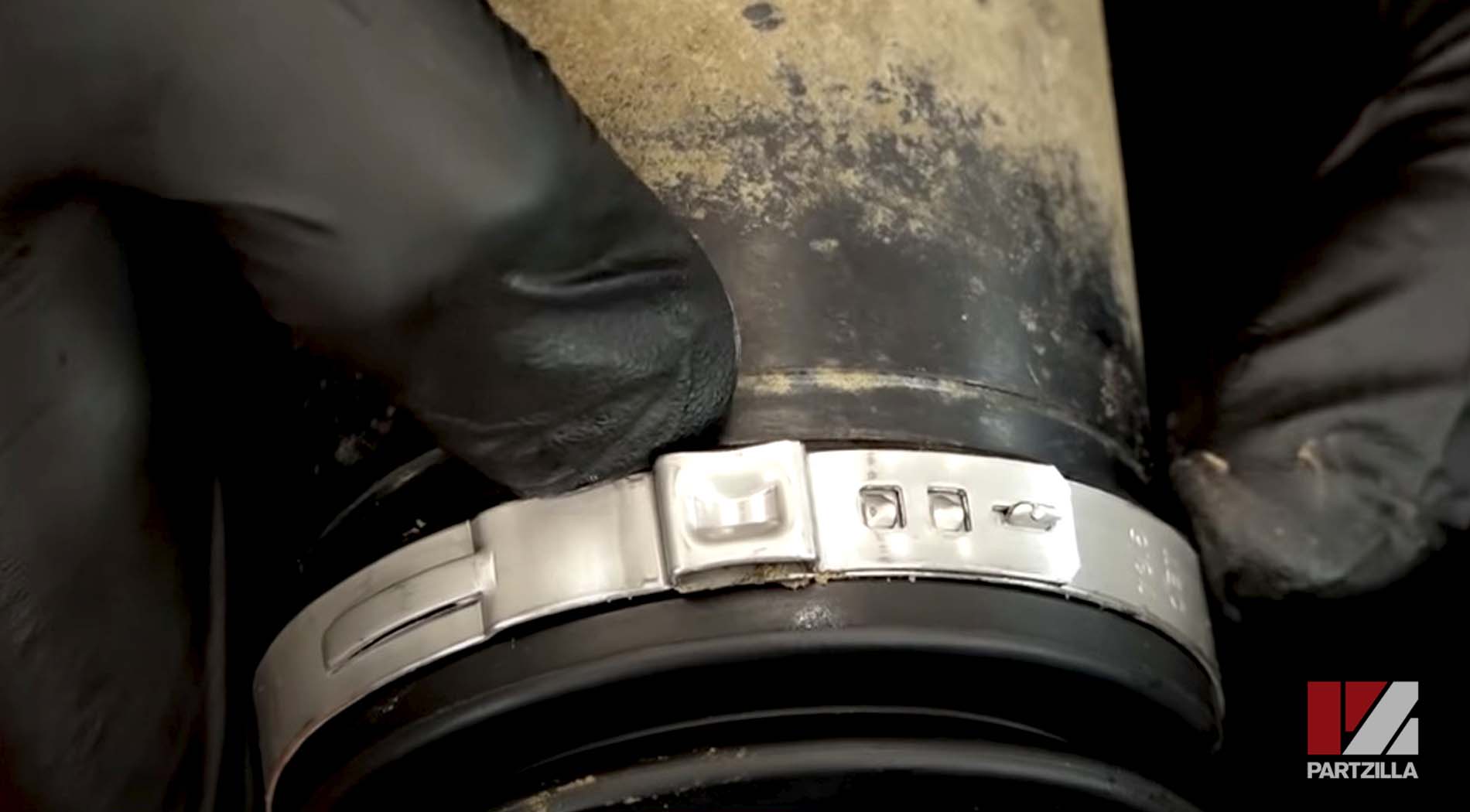
Step 11. Slide the innermost retaining band for the outer CV boot onto the driveshaft first, then slide on the new outer CV boot.
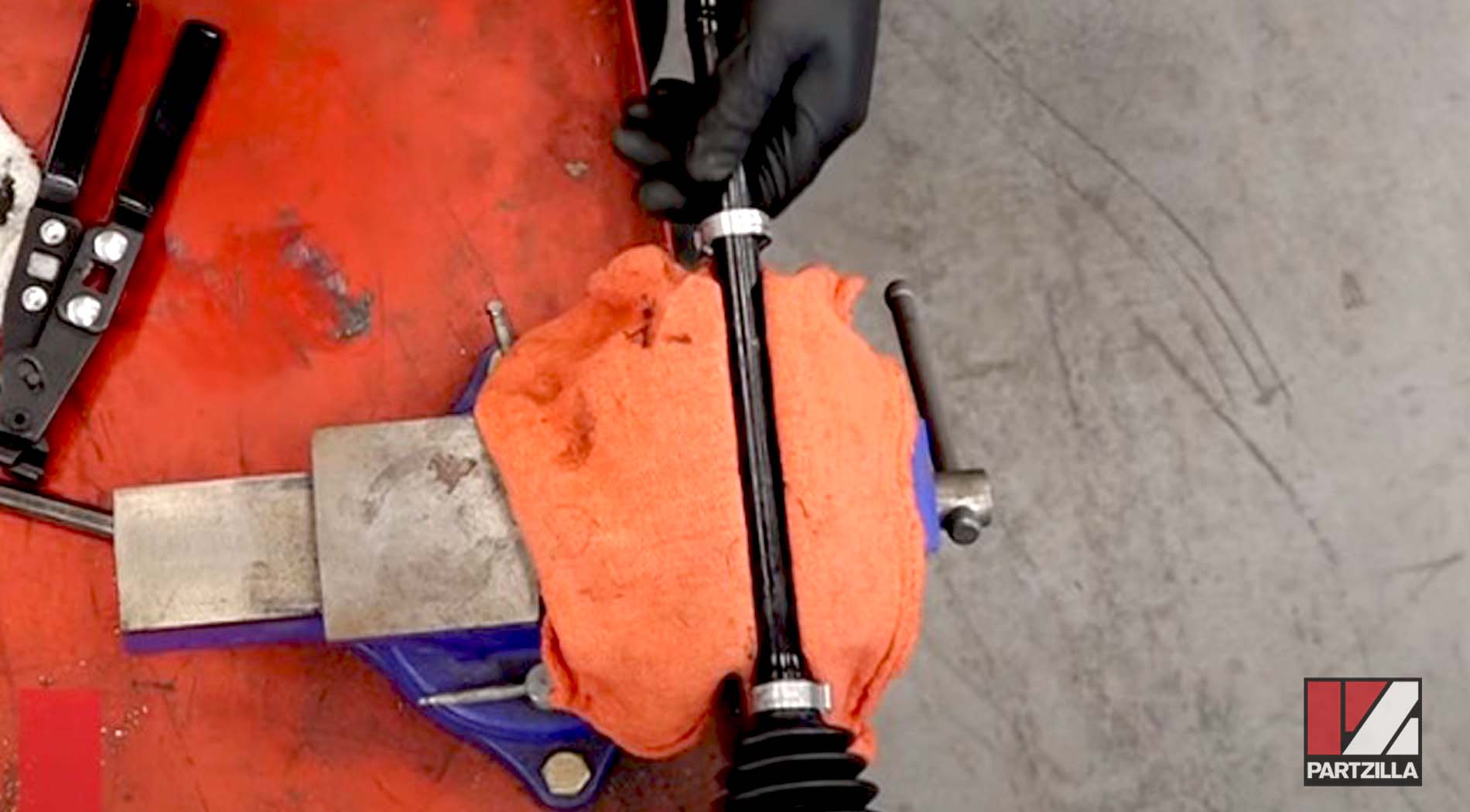
NOTE: The band must always be installed before the boot.
Step 12. Slide the outer CV joint back onto the driveshaft, then give it a twist to align and engage it with the driveshaft splines. Tap the outer CV joint back into place with a soft-blow hammer until it’s fully seated.
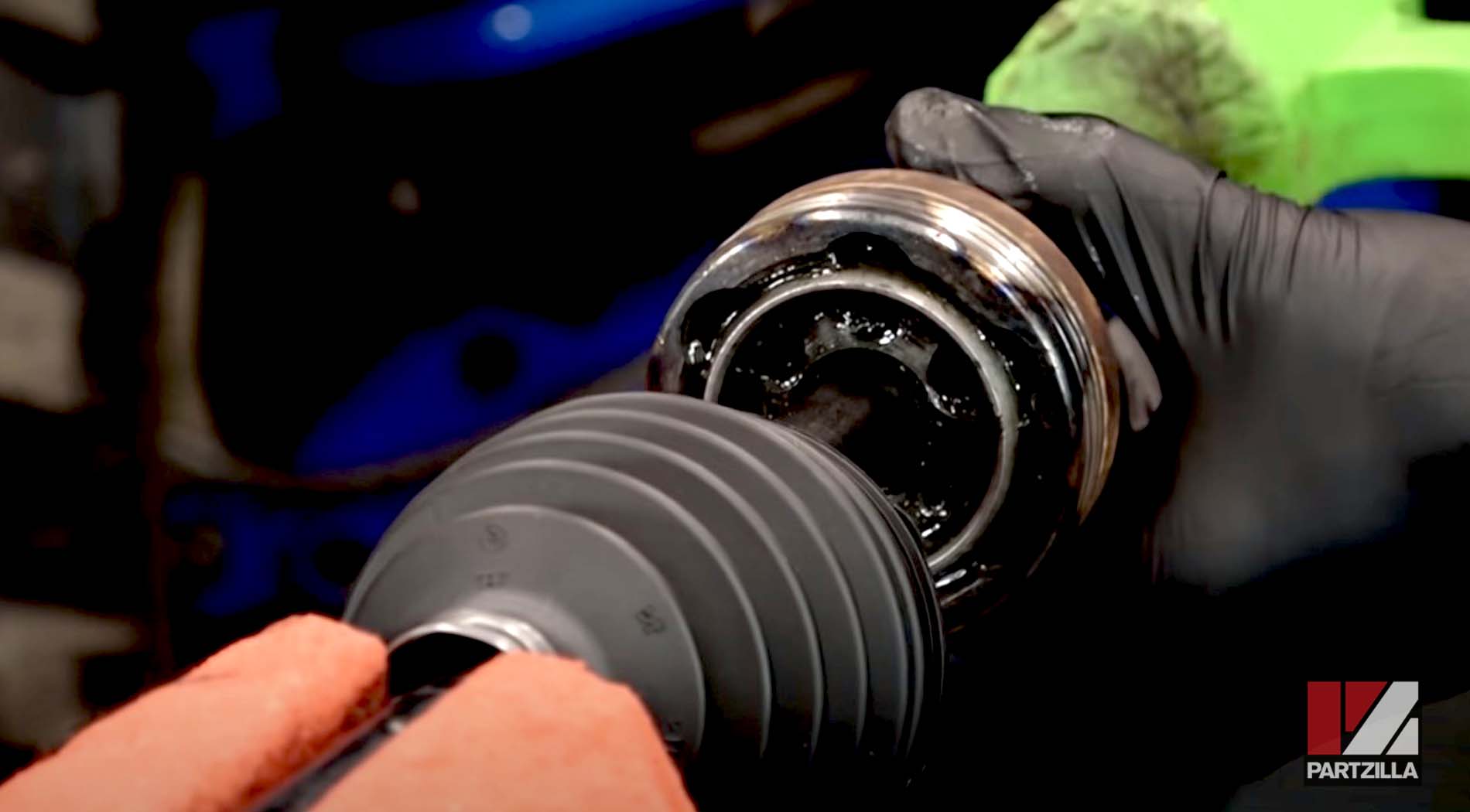
Step 13. Pack the outer CV boot and outer CV joint with grease and pull the boot over the CV joint. Pull the other end of the boot into its slot on the driveshaft.
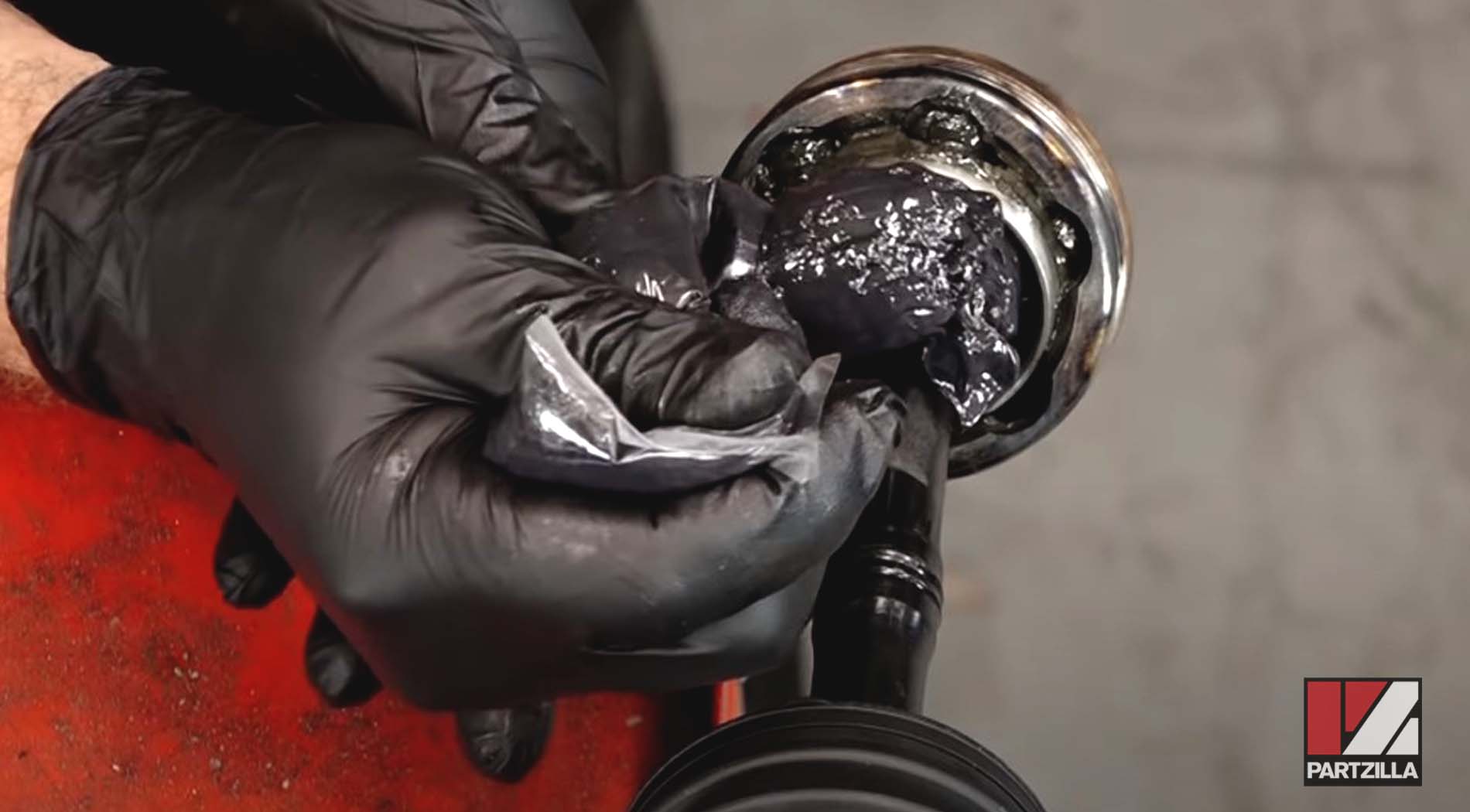
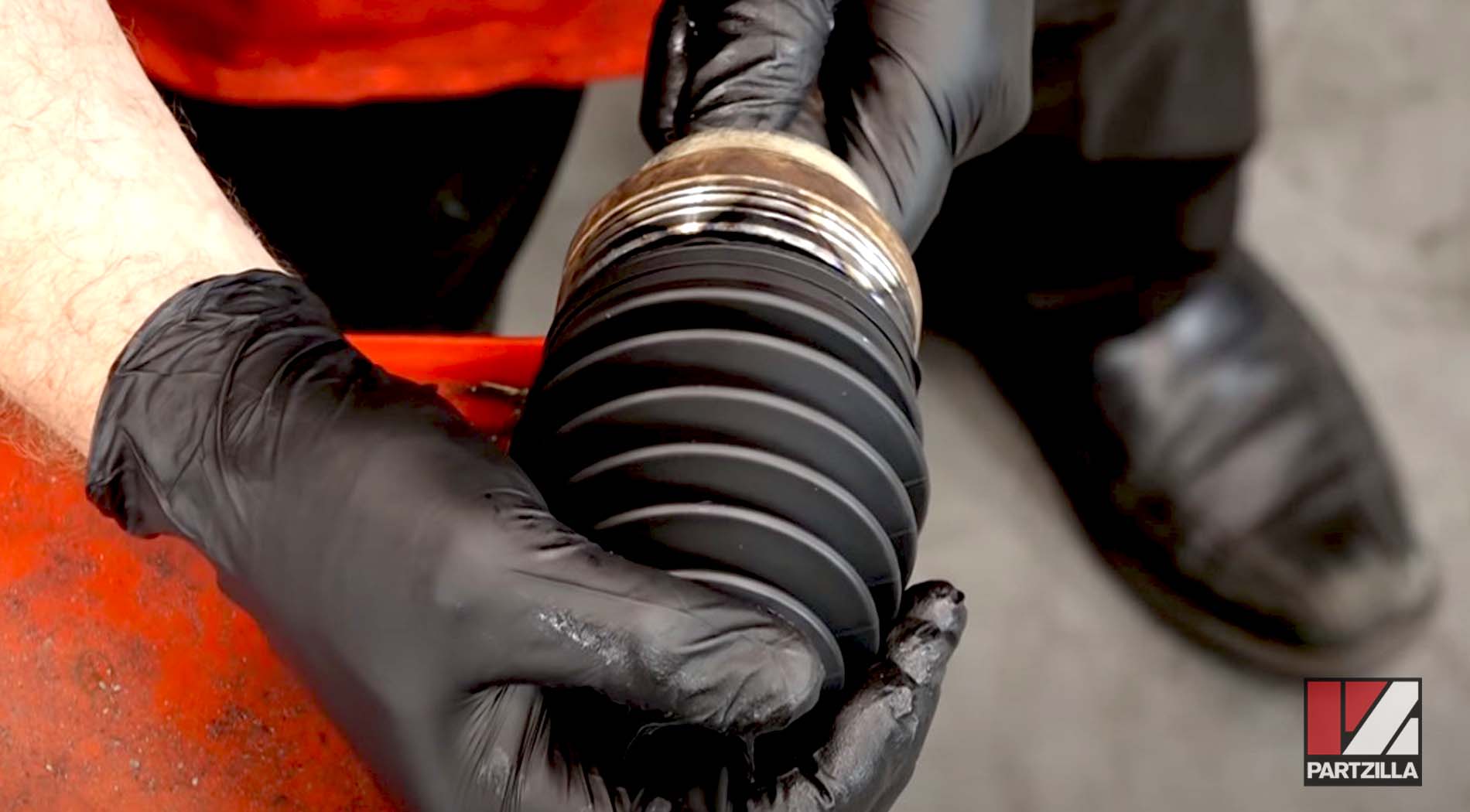
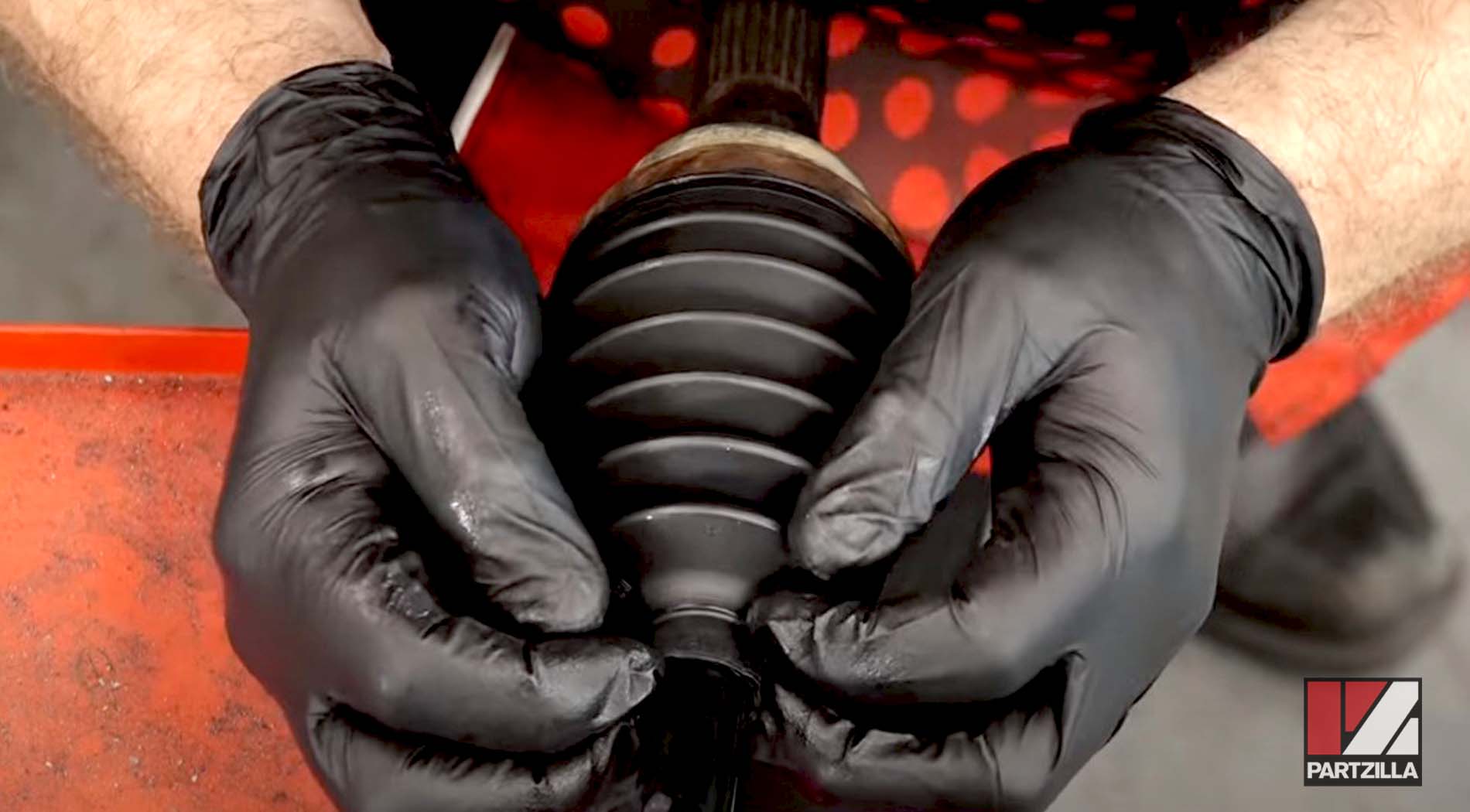
Step 14. Install the new retaining bands over the outer CV boot, and use the CV joint pliers/CV boot tool to secure them.
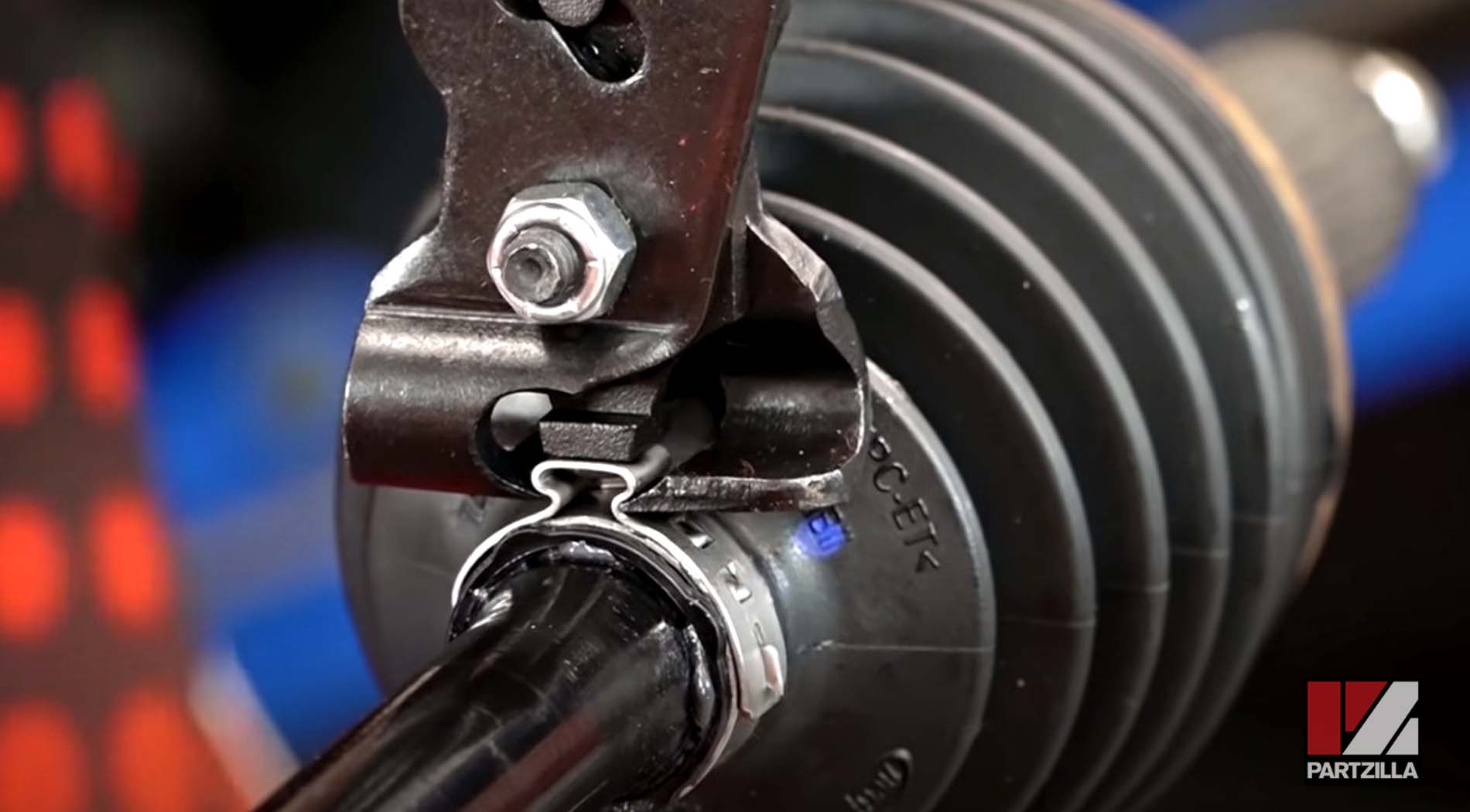
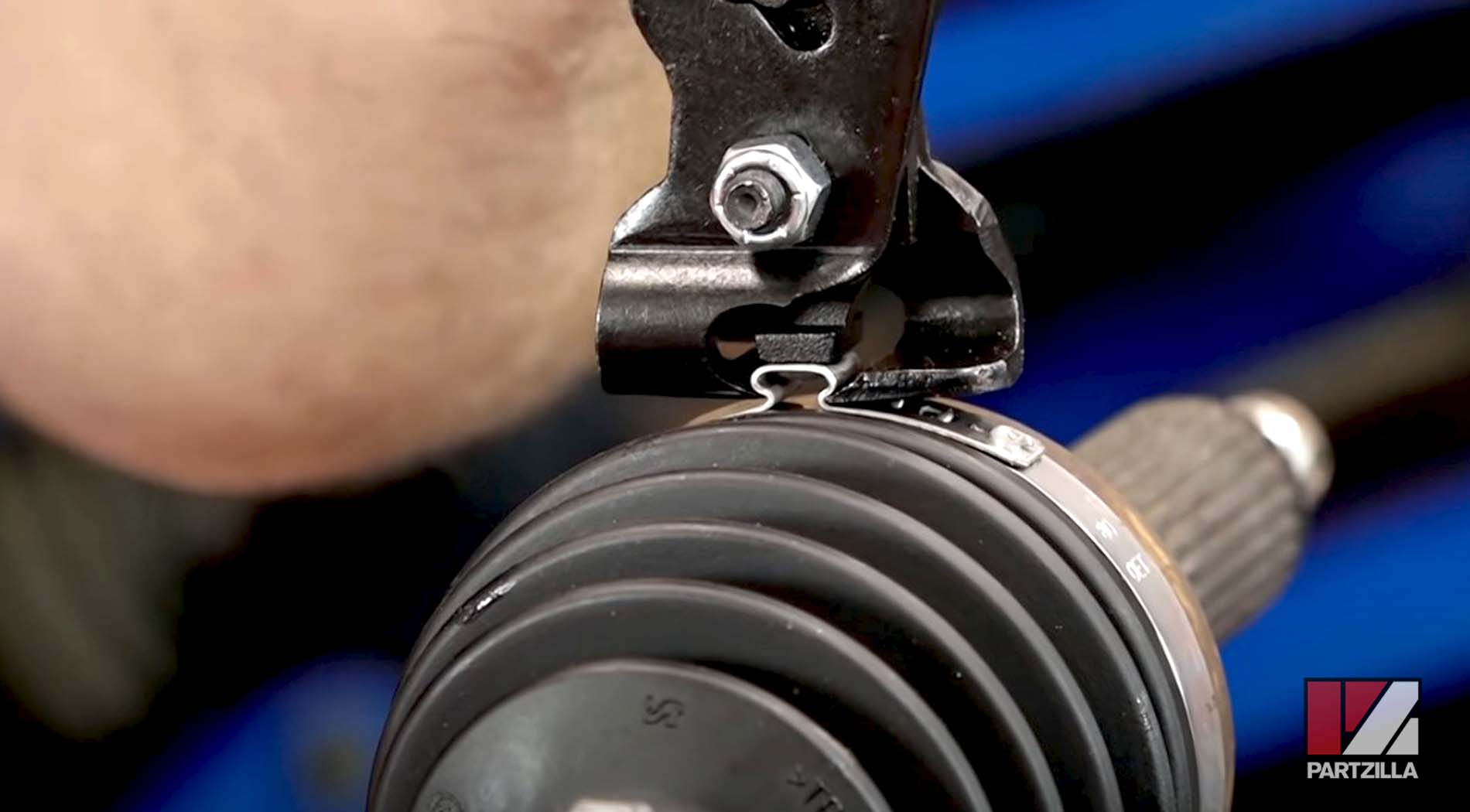
Step 15. Clean the splines on the inner and outer CV joint axles with contact cleaner, then re-grease them with a quality grease.
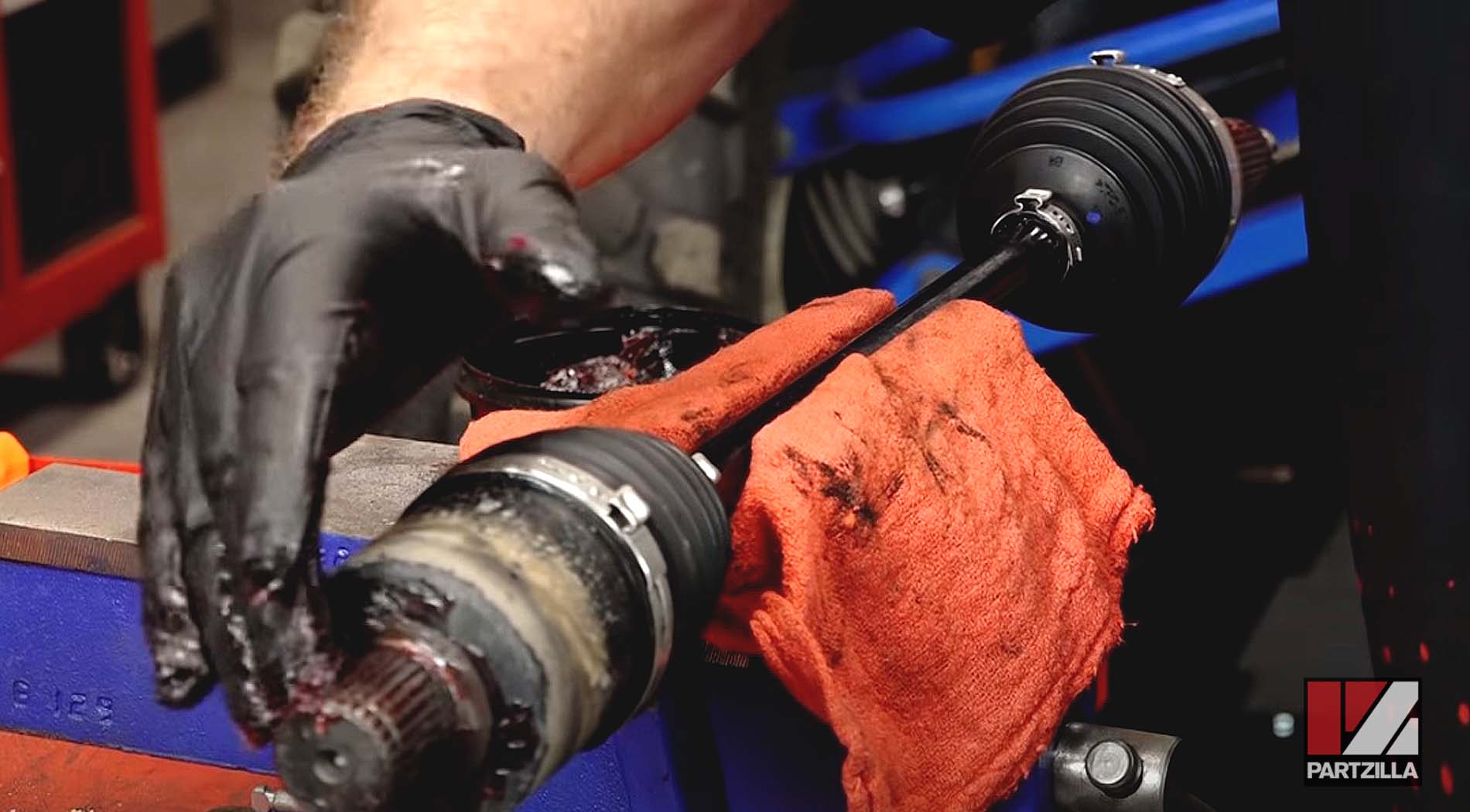
Step 16. Slide the inner CV joint axle back into the transmission. Twist it slightly to align and engage the splines, then use a soft-blow hammer to knock it back into the transmission housing until it’s fully seated.
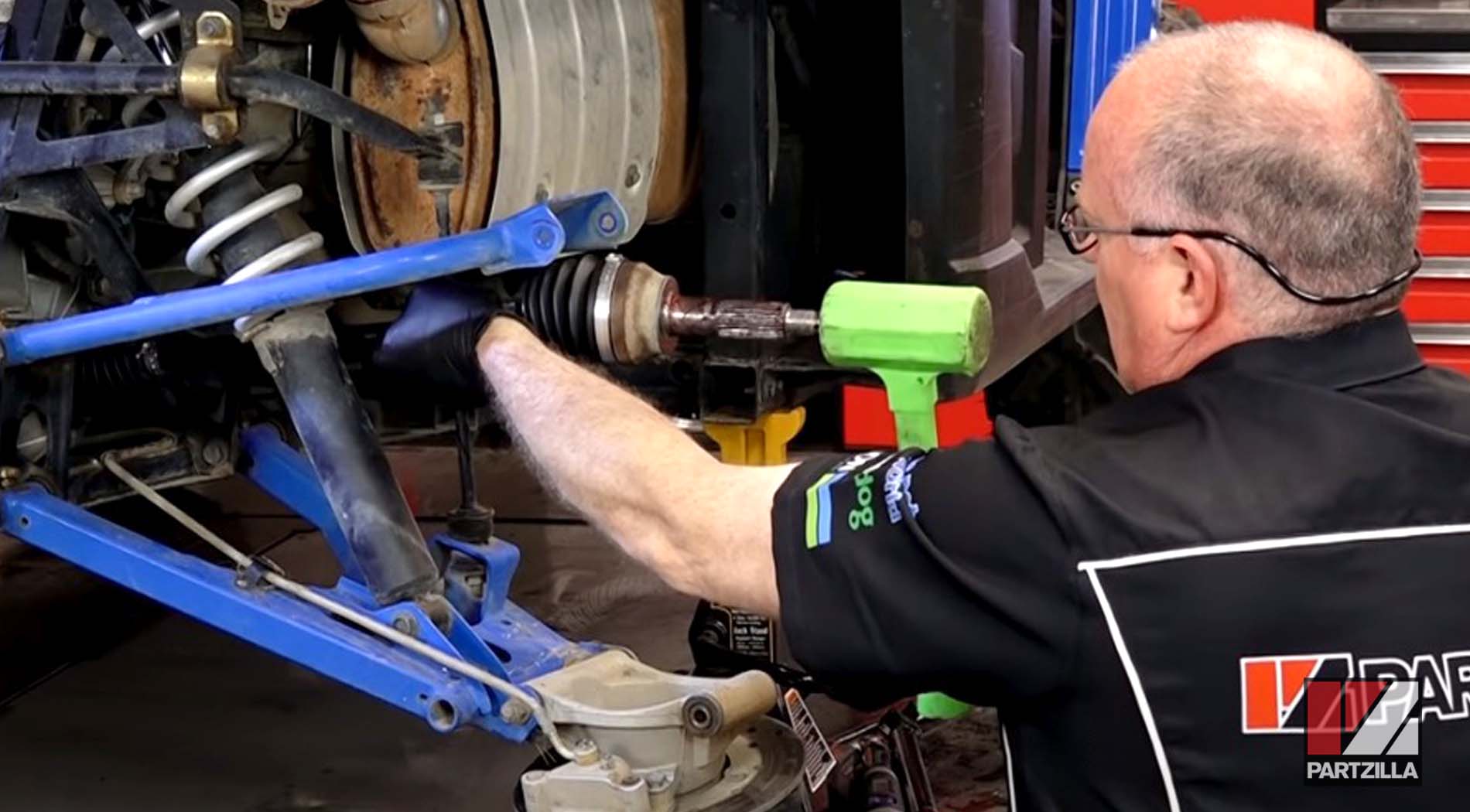
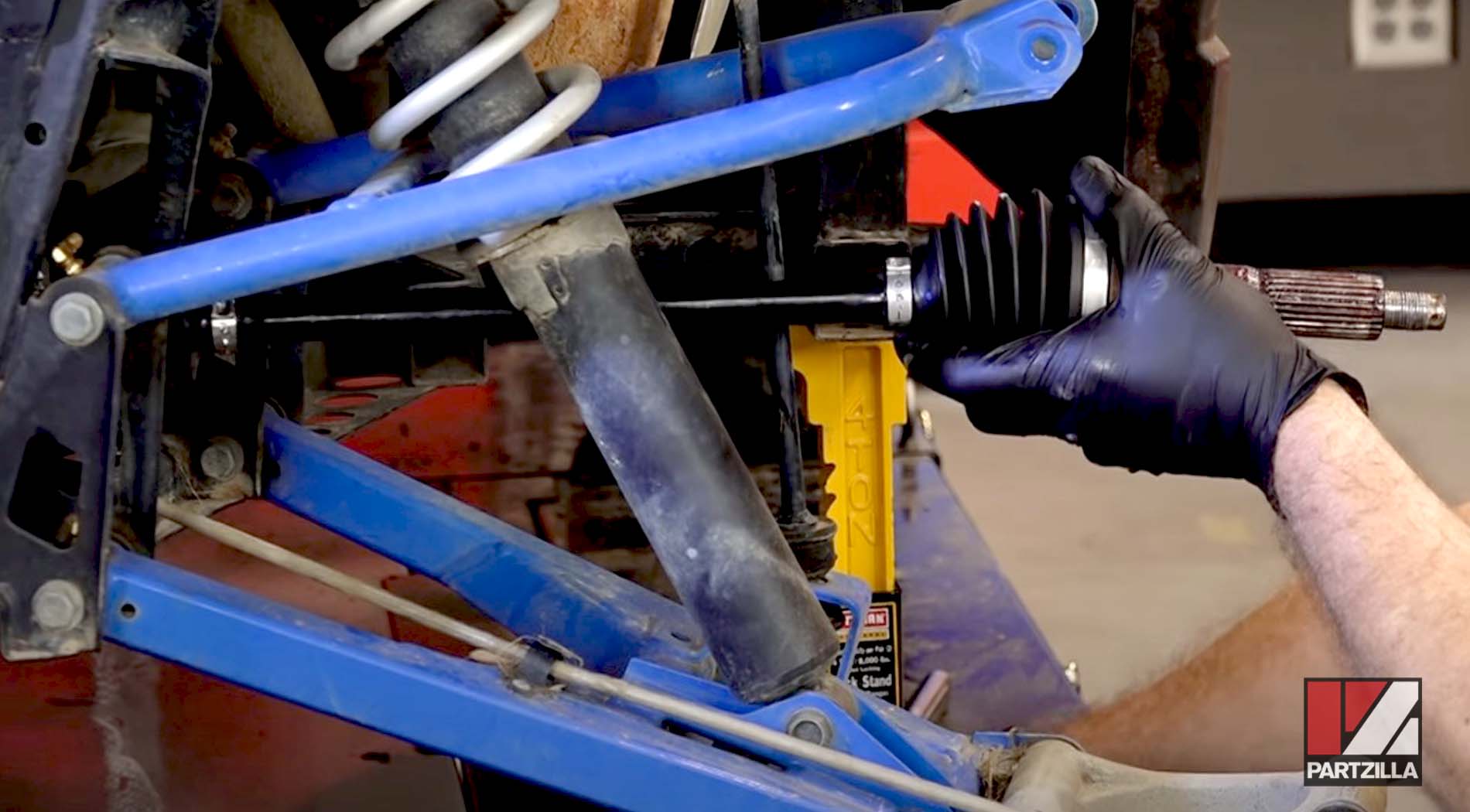
Step 17. Raise the upright/hub assembly back up, and slide the CV axle back through it while twisting the driveshaft to engage the splines on the CV axle with those in the hub.
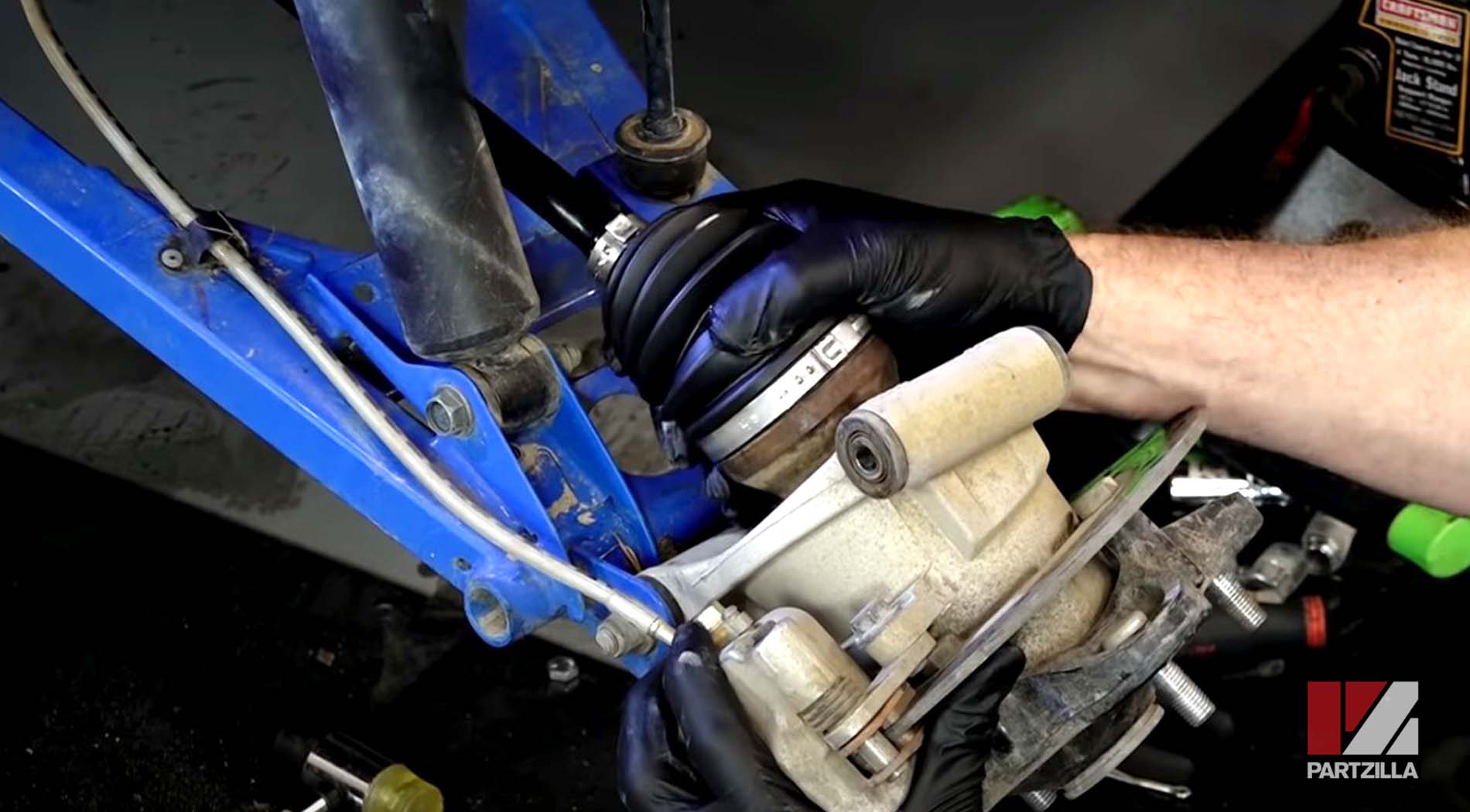
Step 18. Lower the upper A-arm, then reinstall the mounting bolt and torque it to 40 foot-pounds.
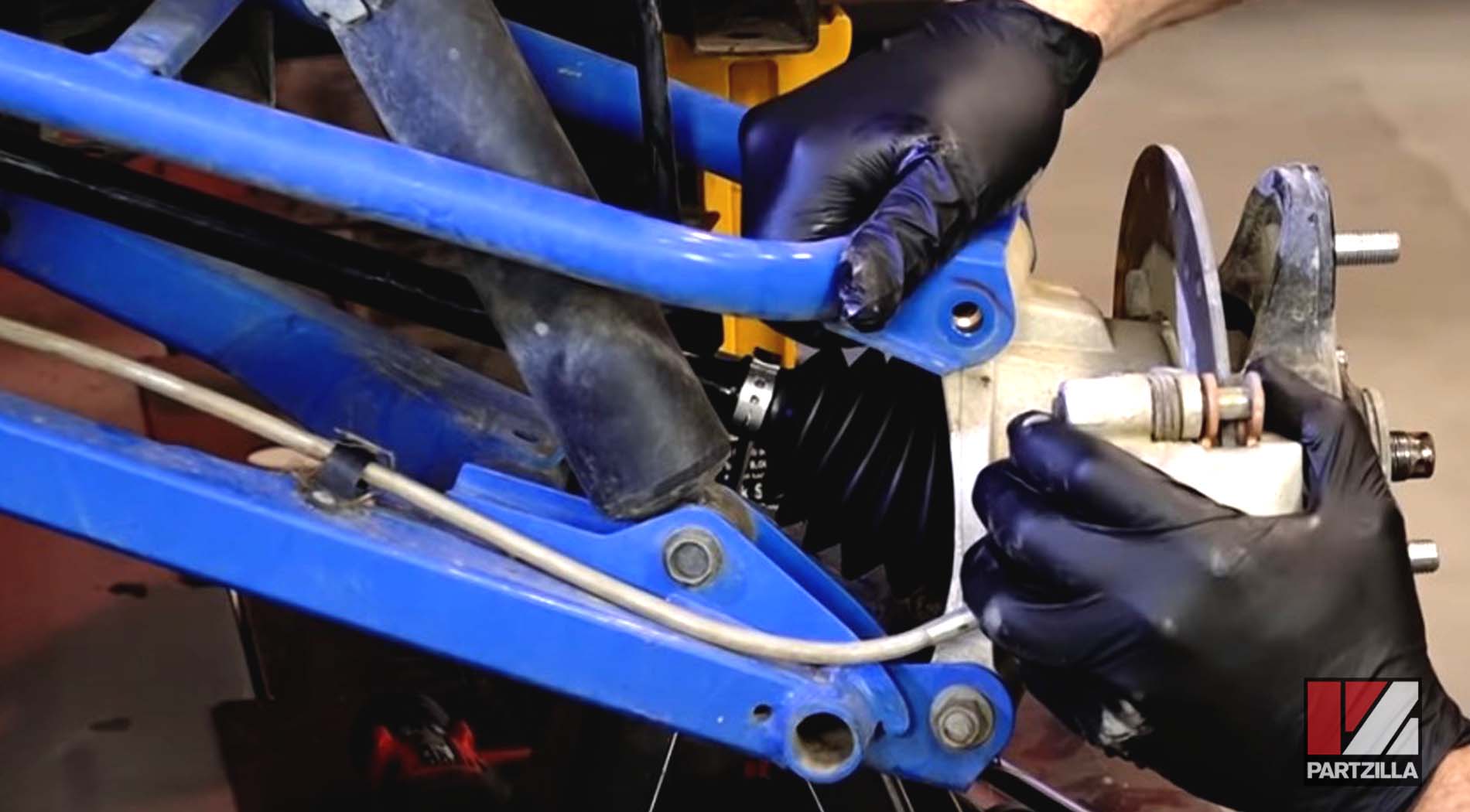
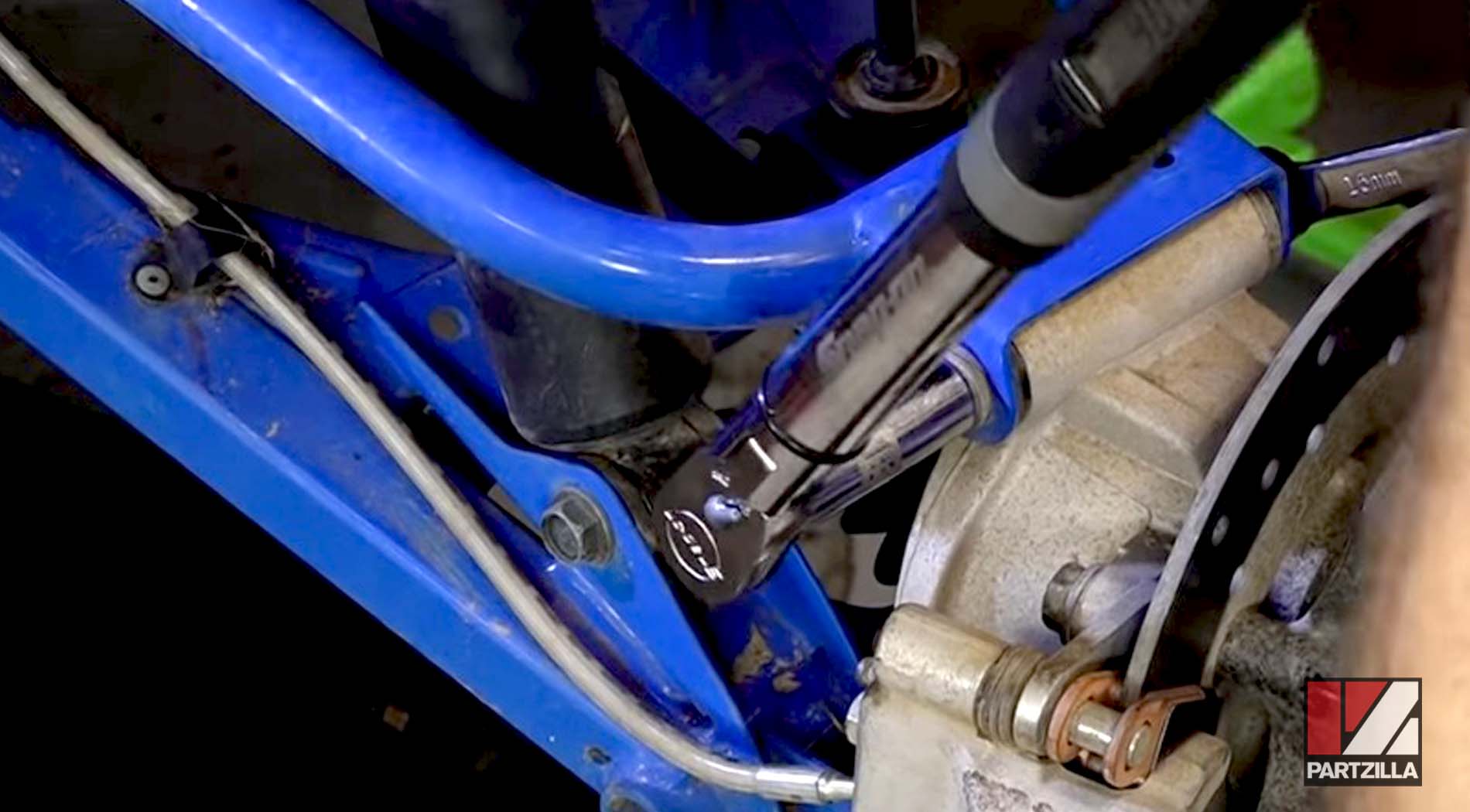
Step 19. Reinstall the two thrust washers and the castle nut onto the axle. Make sure the beveled edges of the washers are facing inward toward the hub and torque the castle nut to 110 foot-pounds. Reinstall the cotter pin.
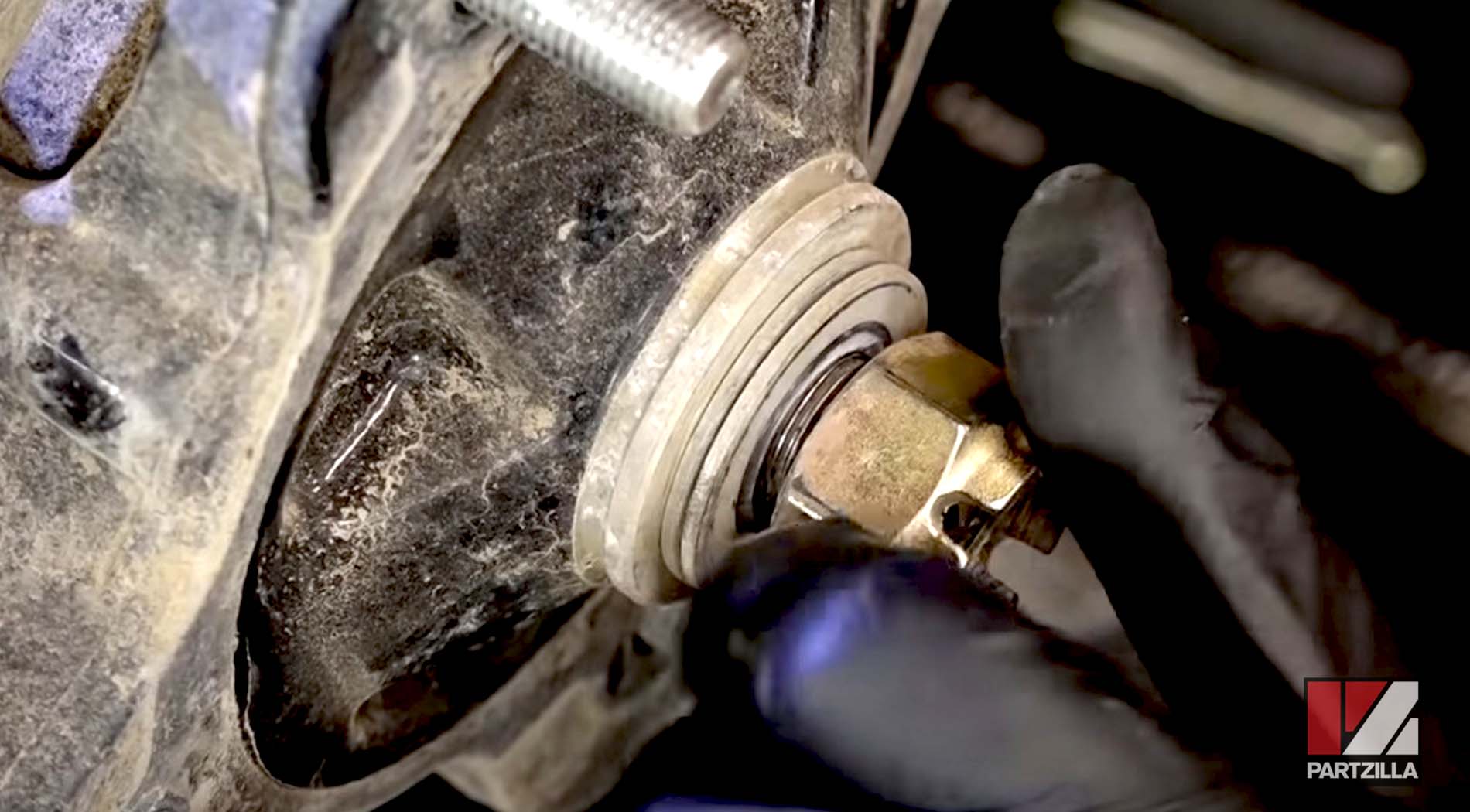
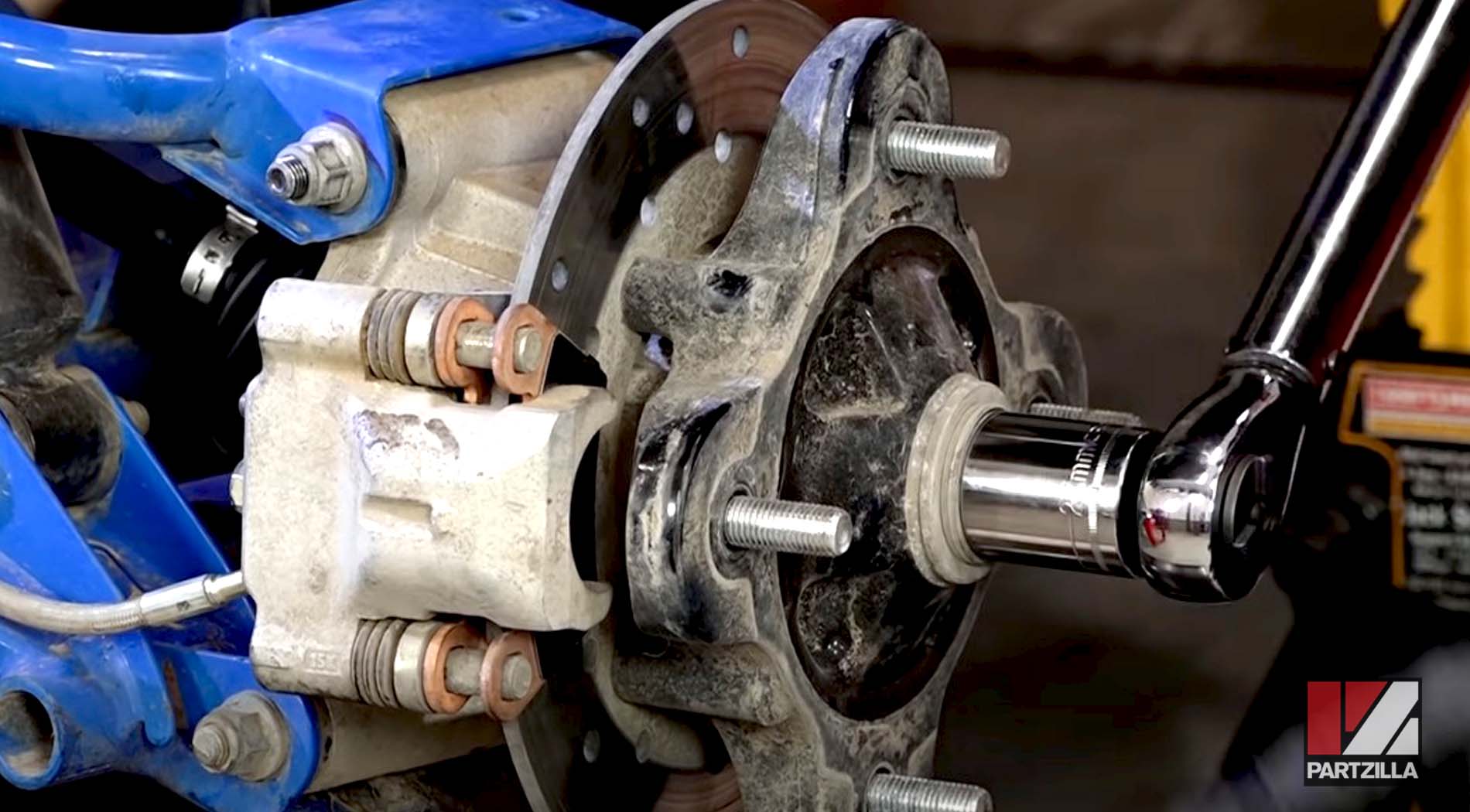
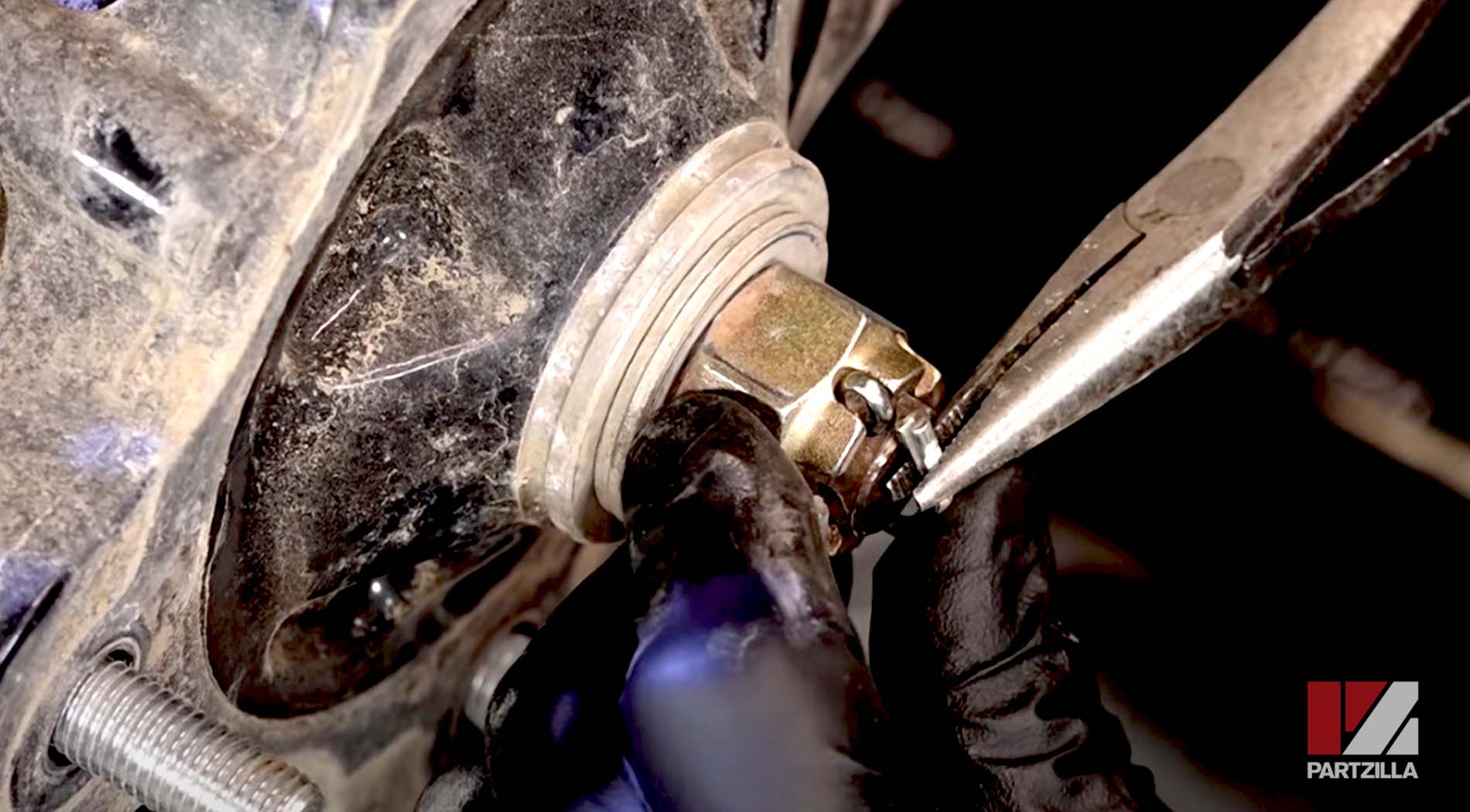
PRO TIP: To tighten the castle nut, get someone to step on the brake pedal to prevent the hub and axle from spinning.
Step 20. Reinstall the wheel, then tighten the lug nuts, lower the Ranger and torque the nuts to 120 foot-pounds.
